The OGEES Institute at ABUAD organizes awareness campaigns on climate change risks, impacts, mitigation, and adaptation. This awareness campaign was organized in 2024, The World Environment Day: International Law Experts Call For Renewed Commitment To The United Nations Sustainable Development Goals (SDGs). The recommendation was made at a public lecture to commemorate this year’s World Environment Day. World Environment Day is an annual event led by the United Nations Environment Programme and held annually on 5 June worldwide to promote global awareness of environmental issues.
Themed “Land Restoration, Desertification, and Drought Resilience (Our Land. Our Future)” this year’s 2024 ceremony was organized by the Natural Resources, Energy and Environment (NREEL) Committee of the International Law Association (Nigerian branch) chaired by Oluwaseyi Ebenezer, and held in partnership with the Institute for Oil, Gas, Energy, Environment and Sustainable Development (OGEES Institute), Afe Babalola University Ado Ekiti (ABUAD), National Environmental Standards and Regulations Enforcement Agency, Ekiti State, National Emergency Management Agency (NEMA) as well as the Ekiti State Ministry of Environment, NGOs and several Youth led Organizations in the state in concert with Triple Green Environmental Development Foundation (TGED Foundation).
The Committee on Natural Resources, Energy & Environment (NREEL) of the International Law Association-Nigerian Branch under the leadership of Oluwaseyi Ebenezer, FESMI FSM FIMC CMC invites you to this year’s hashtag#WorldEnvironmentDay conference, featuring several eminent speakers. The event is organized in partnership with Institute for Oil, Gas, Energy, Environment and Sustainable Development, Afe Babalola University, Triple Green Environmental Development Foundation (TGED Foundation) and CPEEL University of Ibadan
Date: June 05, 2024 | Venue: CPEEL UI of Ibadan
Special Guest: Temilolu Ashamu, Honourable Commissioner for Energy and Mineral Resources, Oyo State Government of Nigeria
Keynote speaker: Prof. Walters Nsoh, University of Birmingham, United Kingdom
Panelists: Hon. Olusola Owolabi, Chairman, House Committee on Environment and Ecology, Oyo State House of Assembly, Dr. Godswill Agbaitoro PhD, FHEA, Jumoke Olowookere, Patricia Ubiaza-Eze, Adedoyin Adeleke, PhD, Dr. Afolasade ADEWUMI, Dr. Peter Kayode Oniemola, AGBO Chinonso Bathlomeo, Nenritmwa Gotodok L.L.M Energy Law, Secretary of NREEL
Register: https://lnkd.in/gjz5J_6s
hashtag#sdgshashtag#esghashtag#energyhashtag#environmenthashtag#sustainabledevelopmenthashtag#worldearthdayhashtag#futuregenerationshashtag#bizhumanrightshashtag#energyjusticehashtag#lawhashtag#nigeria
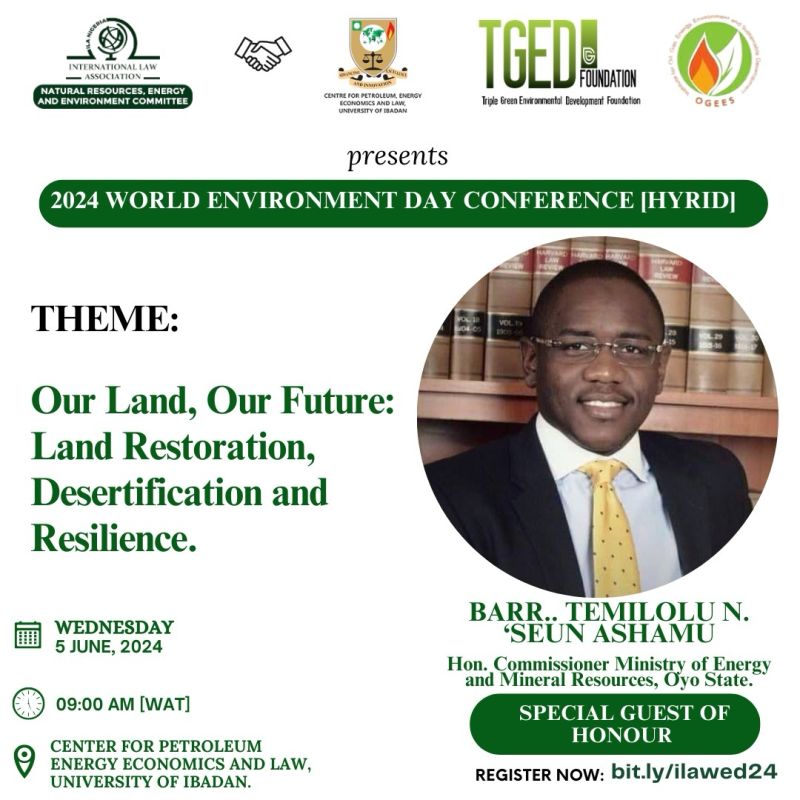
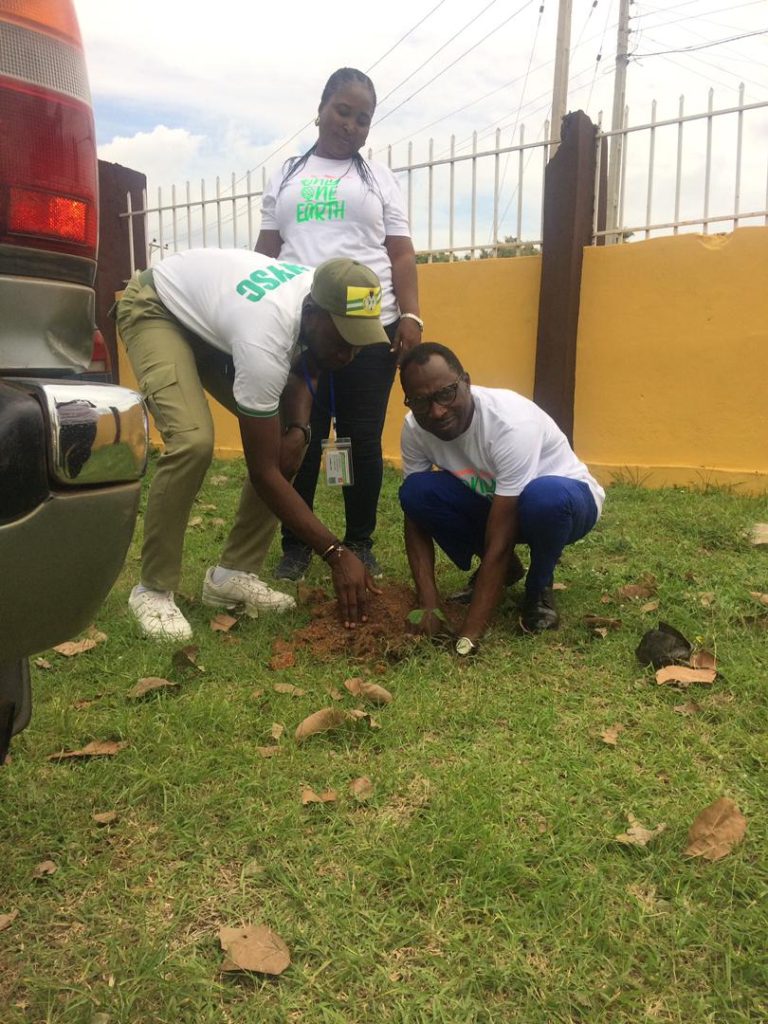
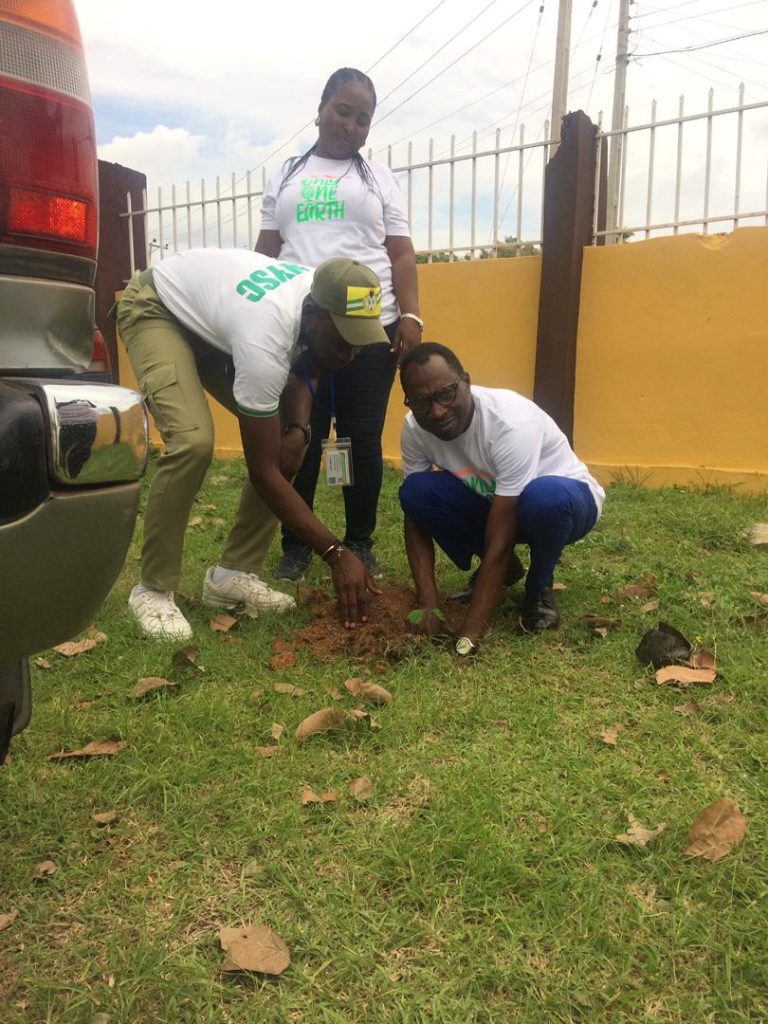
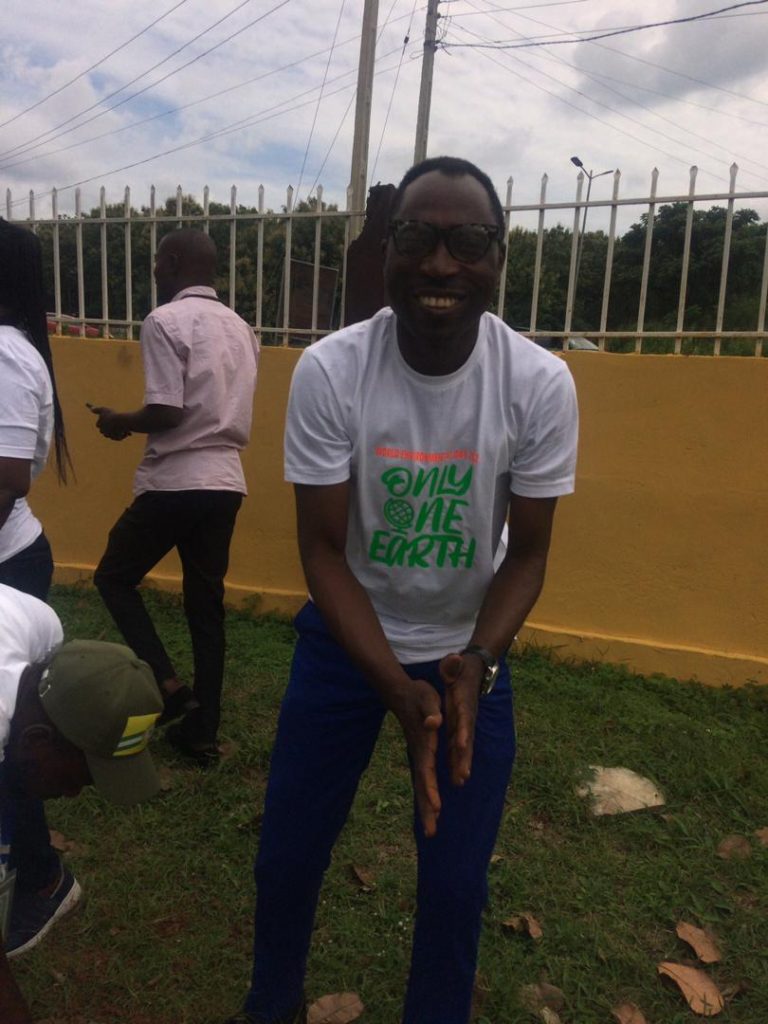
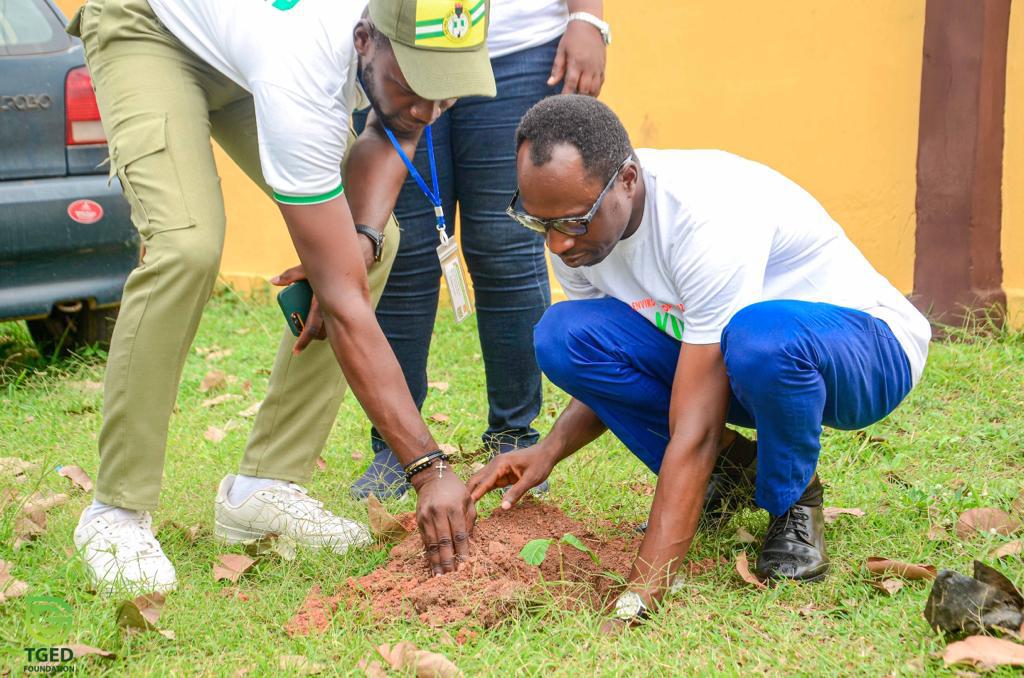
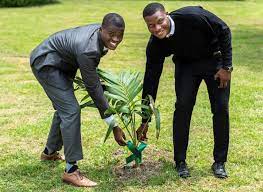
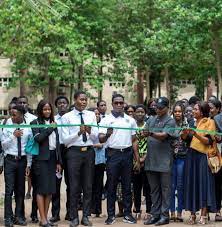

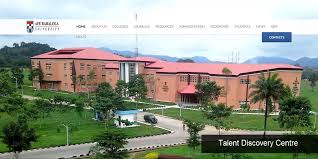
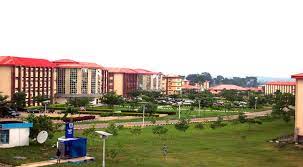
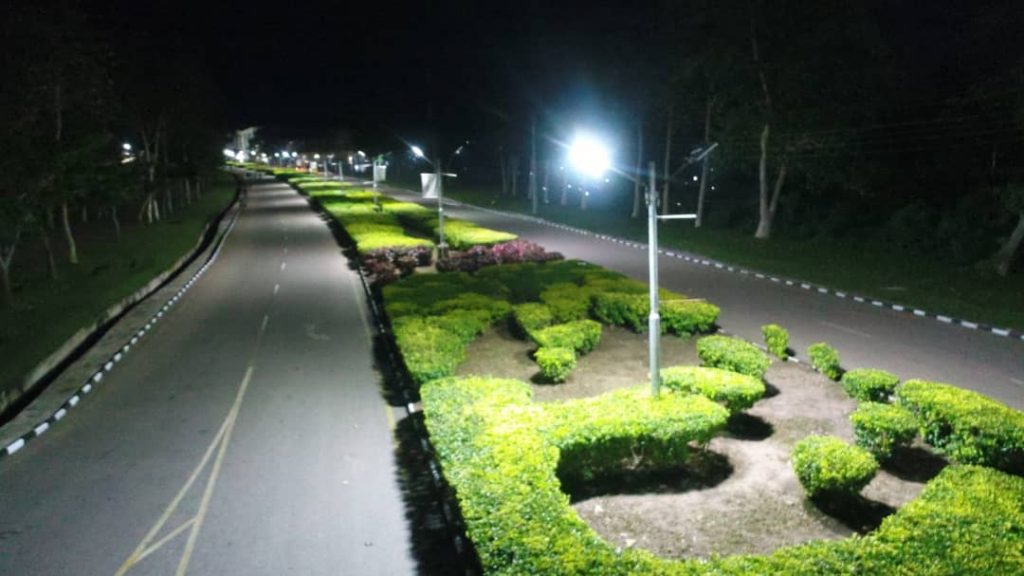
In like manner, the 2023 ceremony featured a compelling keynote conversation with Professor Christina Voigt, a world-renowned professor of international environmental law at the University of Oslo, Norway, and the Chair of the IUCN World Commission of Environmental Law
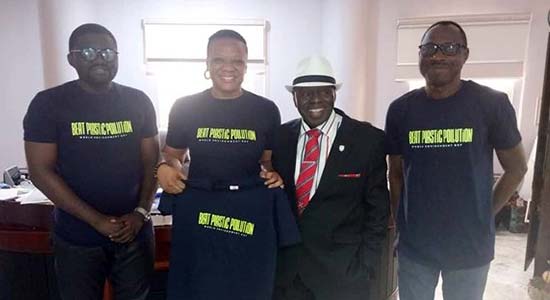
Professor Voigt called on governments across the world, including Nigeria to actively adopt two complimentary strategies to combat plastic pollution and advance the SDGs. First is the bottom-up strategy of adopting homegrown solutions to plastic pollution, including through clean entrepreneurship innovation, and second is the top-down strategy of adopting and implementing international instruments on combating plastic pollution.
The keynote conversation was followed by high-level panel discussions featuring notable experts including Dr. Isa Elegbede of Geo Blue Planet, Switzerland, Dr. Adenike Akinsemolu of the Green Institute, Nigeria and Folakemi Jegede, a member of the NREE Committee who discussed the role of government and business enterprises to reduce plastic pollution through sustainable packaging, green procurement and emphasis on pollution control.
In his opening goodwill message, the President of the International Law Association (Nigerian Branch), who is also Vice Chair of the United Nations Working Group on Business and Human Rights, Professor Damilola S. Olawuyi, SAN said “We have just seven years left for the attainment of all the SDGs, which places enormous responsibility on the new administration of President Bola Tinubu. A renewed commitment to the SDGs can be the foundation for attracting new global sustainability-related investments and financing, doubling our internally generated revenue and creating new green technologies and jobs that are needed to propel the Nigerian economy at these very challenging times. The way forward is to place the SDGs squarely at the heart of planning and decision making at all levels. As time and opportunities wait for no one, I hope the new administration will take prompt and active steps to refocus national planning on the SDGs, realizing that if we fail to do so, such financing opportunities will go to other ready markets.”
On her part, the Chairperson of the Committee, Ms. Oluwaseyi Ebenezer charged governments at all levels as well as the various stakeholders to not only curb plastic pollution but also to stretch their reach far and beyond to other environmental issues such as climate change and biodiversity loss through continued collaboration and partnerships in line with the ‘United Nations SDG 17 so as to create a greener and safer environment for us all.
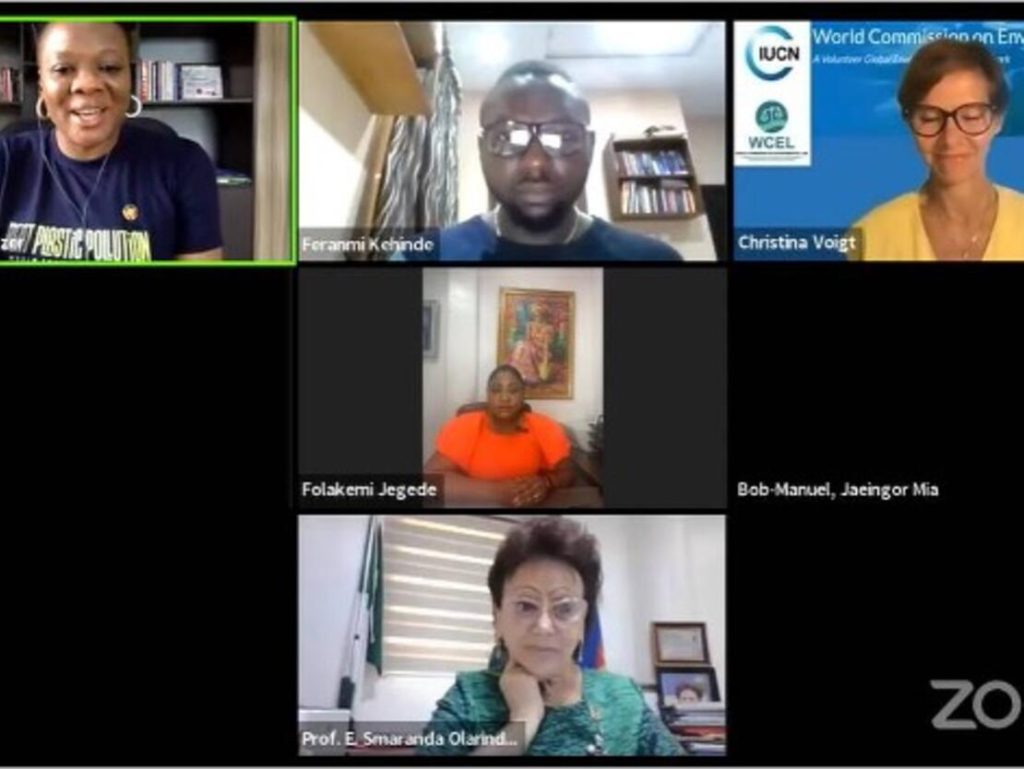

This year’s 2023 celebration also featured a road campaign on plastic pollution across Ado Ekiti, the capital city of Ekiti State which took place on the 5th of June. The campaign was declared open by the Vice Chancellor of Afe Babalola University, Ado Ekiti (ABUAD), Prof. Elisabeta Smaranda Olarinde who in her speech stated the urgent need to address the adverse environmental impacts of plastic pollution and encouraged the public to embrace sustainability lifestyles. The road campaign was attended by a large number of people including notable stakeholders such as the National Environmental Standards and Regulations Enforcement Agency (NESREA), National Emergency Management Agency (NEMA) as well as the Ekiti State Ministry of Environment, NGOs and several Youth led Organizations in the state.
In addition to spearheading research on climate change, the ABUAD Climate Change Symposium is organized by the Institute annually in partnership with local environmental groups. In 2022 edition, ABUAD, in partnership with Triple G Eco-Revival Solutions, as part of the World Environment Day (WED) 2022 tagged “Only One Earth” celebrations, provided targeted awareness and sensitization campaigns for children, youth, women, and stakeholders on the key impacts of climate change, and approaches for acceleration mitigation, adaptation and the review of the University Climate Change Action Plan.
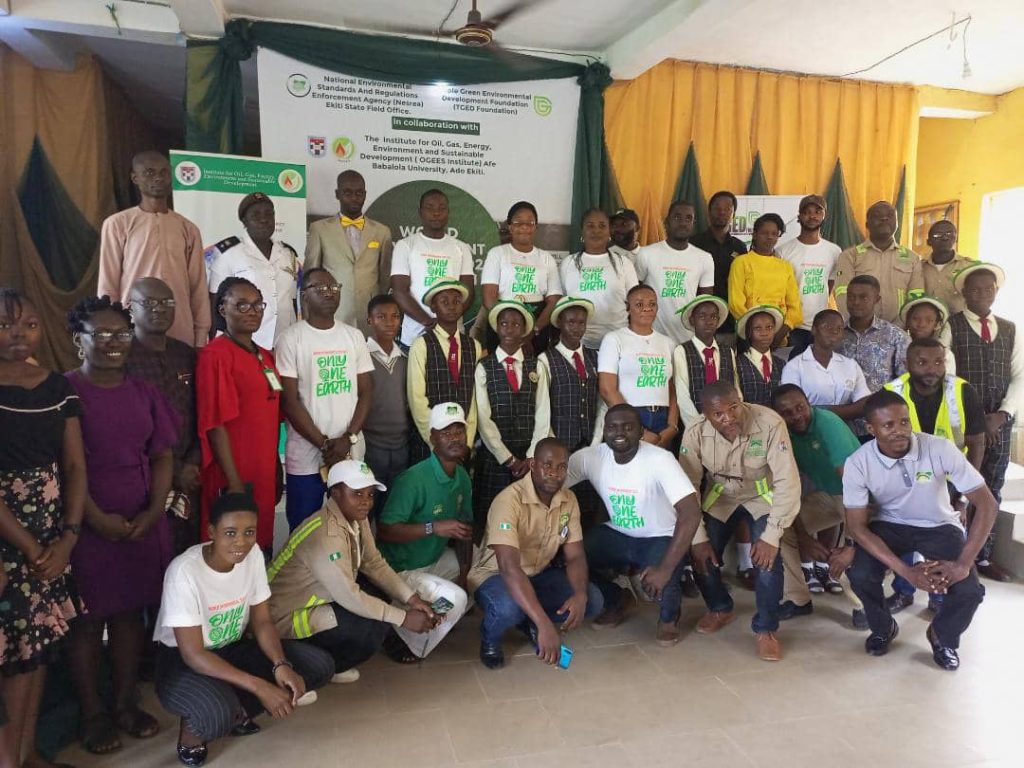

It was climaxed with the exploratory journey to the space at the ABUAD Planetarium.
In 2024, ABUAD collaborates with NGOs, CBOs and Government on Climate Change Disaster Management and Hazard Mitigation Campaign.

Afe Babalola University has further taken the 2024 edition of her campaign to save our planet in the areas of climate change disaster management and hazard mitigation framework by collaborating with community-based organizations (CBOs), Non-governmental organizations (NGOs) and Ekiti State Government and Nigeria’s ministries, departments and agencies of government (MDAs).
In a bid to deepen her determined vision through advocacy to ensure that our planet is free of greenhouse gas (GHG) emissions carbon emission and prevent undue depletion of the ozone layer, ABUAD has engaged CBOs, NGOs local, state, and federal government in a discussion on Climate Change Disaster Management and Hazard Mitigation Plan. The event was held at the Alfa Belgore Hall, of Afe Babalola University on the 13th of November 2024. It was also attended by Former President of Nigeria, General Olusegun Obasanjo (Rtd), The Governor of Ekiti State, His Excellency Governor Biodun Oyebanji, the representative of the President of Nigeria, HE President Mohammadu Buhari ably represented by Mrs Adenike Orelope-Adefulire, Senior Special Assistant to the President on SDGs, Monarchs, Community-Based Organization, Non-Governmental Organizations, top government functionaries, the staff and students of Afe Babalola University (ABUAD, Nigeria..
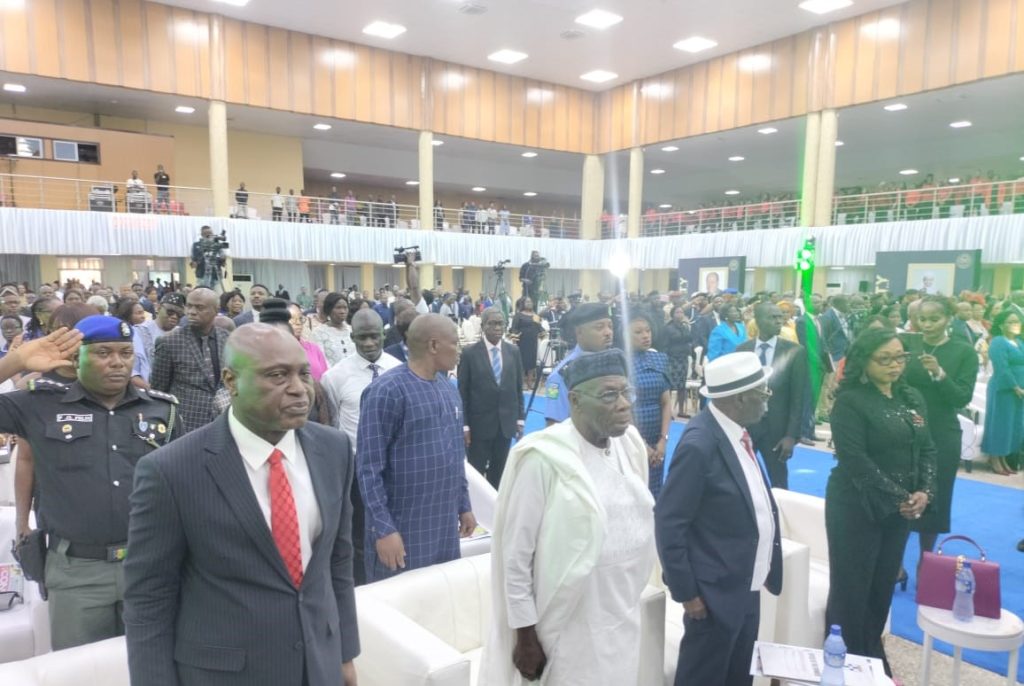
Professor Damilola S. Olawuyi, Professor of Sustainability and Environmental Law, the Deputy Vice-Chancellor, Academic, Research, Innovation and Strategic Partnership (ARISP) who also doubles as the Director of ABUAD OGEES discussed the various types of disaster inherent in climate change and phases of hazard mitigation planning process which include firstly, organizing the mitigation planning process with its attendant resources with as it affects every member of the stakeholders, secondly, a risk assessment of the impact of hazard as it affects the various societal groups were a critically examined with respect to the various risk mitigants that will be put it in place to cushion the negative impact, thirdly, having considered the risk mitigants, a robust strategic framework was discussed that will assuage and ensure sustainable prevention of future occurrence of the negative impact of hazards on the society and lastly, the adoption and implementation plans were agreed upon by the participants.
Barrister Oluwaseyi Ebenezer, the Chief Executive Officer of Triple Green Environmental Developments (TGED), a non-governmental organization, thanked the Founder/Chancellor of Afe Babalola University, Aare Afe Babalola, for his resilient attitude to ensuring zero GHG emissions by organizing this event annually. She pledges the support of her NGO to continually support this Hazard Mitigation Plan in Ado Ekiti Local Government, Ekiti State, and Nigeria as a whole. She emphasized that this 2024 edition is another testament to the determination of ABUAD to meet her Climate Action Plan of ensuring carbon neutrality by 2024.
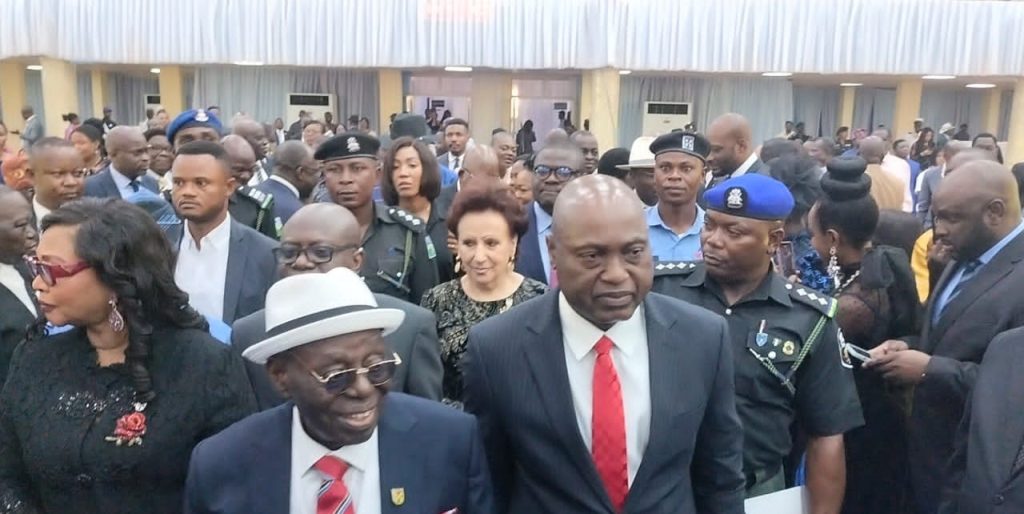
Ewi of Ado – Ekiti, His Royal Majesty Oba Adejugbe who spoke on behalf of the royal fathers and community-based organizations expressed optimism on our planet becoming very safe by the initiative of ABUAD through its Founder, Aare Afe Babalola and the invaluable support of the entire staff and management of Afe Babalola University. He said that he will ensure the domestication of the plan at the rural communities for its positive impact.
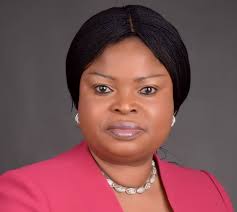
Mrs. Adefunke Orelope-Adefulire, the Senior Special Assistant to the President of Nigeria on Sustainable Development Goals (SDGs) who represented the President Bola Ahmed Tinubu GCFR at the event highlighted the federal government’s commitment to zero GHG emissions said the initiative of ABUAD at preventing climate change disaster and assuage its attendant risk is worthy of commendation. She pledges the government’s continued support at ensuring that adequate publicity will be made to ensure the proper domestication of ABUAD’s climate change disaster management strategies and hazard mitigation processes discussed at today’s event. She added that ABUAD initiative of ensuring zero carbon emission is totally in tandem with the President Tinubu’s vision of meeting the 2030 of carbon neutrality in Nigeria.
The Governor of the Ekiti State, Governor Biodun Oyebanji was full of praise by pouring encomiums on the Founder of Afe Babalola University for taking the initiative and solely financing the resourceful and rewarding symposium. In his words “The import of Climate Change disaster and hazard cannot be over-emphasized while it is a must to mitigate them” He pledged the government full support to achieve the carbon neutrality goal.
Aare Afe Babalola (the Founder and Chancellor of ABUAD) was indeed pleased with the buy-in of every participant as contained in the responses by the representative of each group. He said with the enthusiasm shown by the government and the public, our planet will indeed become safe. He congratulated his students, staff and management team for organizing this event.
ABUAD continues its collaboration with NGOs to improve SDGs awareness and education
In 2024, ABUAD has continued its collaboration with the Durban University of Technology’s (DUT’s) Dr Emem Anwana, the Faculty Research Co-ordinator at the Faculty of Management Sciences, was recently invited by the Vice-Chancellor of the Afe Babalola University, Ado Ekiti (ABUAD) in Nigeria, Professor Smaranda Olarinde on an academic exchange from 11 January to 15 January 2024. The aim of the visit was for Dr Anwana to engage in various sustainability in academic programmes to strengthen areas of collaboration between DUT and ABUAD, Africa’s fastest growing university.
This visit to ABUAD comes after a Memorandum of Understanding (MoU) partnership which was signed between DUT and ABUAD, last year, 31 August 2021. DUT and ABUAD signed a Memorandum of Understanding (MOU) which also forms part of DUT’s ENVISION2030 that is to build mutually beneficial partnerships.
The ABUAD-DUT MOU aims to enhance the international engagement and capabilities of DUT and ABUAD. To do so, it has set out two key goals which are to establish precise academic and financial arrangements and to support, as appropriate, the exchange of personnel between DUT and ABUAD and conduct collaborative research projects to innovate and address challenges identified by both or either party. The virtual signing ceremony also included the orientation of DUT postgraduate students from the Faculty of Management Sciences.
Dr Anwana explained how the partnership came about with DUT and ABUAD, stating: “On the 31st August 2021, the vice-chancellors of both DUT and ABUAD signed an MOU online which included amongst other things, to train ABUAD staff members to attain higher qualifications in both Master and PHD’s, to conduct academic exchanges amongst both staff and students of both institutions and for academic conferences and webinars to be hosted by both institutions.”
In May 05, 2024, ABUAD Institute for Oil, Gas, Energy, Environment and Sustainable Development (OGEES Institute (OGEES) in collaboration with the International Law Association (Nigerian branch) and the Green Institute, is organizing INTERNATIONAL CONFERENCE ON ENVIRONMENTAL LAW, GOVERNANCE AND SUSTAINABLE DEVELOPMENT with the theme CLIMATE CHANGE, ENERGY TRANSITION AND LOOKING BEYOND, THE EARTH’S FUTURE: THE ROLE OF STAKEHOLDERS IN SUSTAINING INTERNATIONAL ENVIRONMENTAL RULE OF LAW.
The International Conference on Environmental Law, Governance, and Sustainable Development provides a timely opportunity to critically investigate practical, philosophical, and methodological approaches for addressing longstanding barriers to the effective design and implementation of environmental law.
This Conference brings together governments, business leaders, environmental educators, academics, and
practitioners to exchange knowledge experience and learn from each other on how to strengthen the implementation and application of the international environmental rule of law in Africa and beyond.
In June 5, 2021, during the World Environment Day, the Institute for Oil, Gas, Energy, Environment and Sustainable Development (OGEES Institute) in conjunction with Afe Babalola University organized the 2021 edition of the World Environment Day (WED) symposium with the theme: Ecosystem Restoration. Sustainability experts drawn from the University and across the frontier host a hybrid (Online and In-person) summit time #Ecosystem Restoration for the World Environment Day, a United Nations awareness campaign for environmental protection, held annually since 1974. Participants were sensitized on GHG emissions’ management, energy utilization and conservation, advocacy on public pledge of 100% renewable energy, reafforestation, and fossil fuel divestment methodology among many others. The programme commenced at 12noon GMT.

ABUAD has continued its strategic partnerships with non-governmental organizations (NGOs) to promote local awareness on aspects of the SDGs including, zero hunger, good health and well-being. Peace justice and strong institution, climate change, pollution control and conservation among many others.
In June 5, 2020, Jeffrey Sachs (SDSN), Adenike Akinsemolu (Green Institute/OGEES, ABUAD), and Hamad Bin Khalifa University (Qatar Foundation) will be gathering sustainability experts from across the globe to host a virtual summit Time #ForNature for the World Environment Day, a United Nations awareness campaign for environmental protection, held annually since 1974.
Since the industrial era, humans have practiced dominance instead of coexistence with nature. The latest lockdown made it possible to review environmental concerns that humanity is currently facing. Scientists and most authorities agree that the world is experiencing an unprecedented ecological crisis, with large numbers of species on the brink of extinction and rising global temperatures continuing. We weren’t prepared for Covid-19, and we have paid the price – but the cost of ecological collapse and biodiversity loss will be too high, and we cannot afford to wait any longer. Perhaps, now is the time to evaluate our past, present, and future decisions to realize the future we want.

Adenike Akinsemolu, the founder of the Green Institute, a leading and multiple award-winning sustainability research institute in Nigeria and a Senior Fellow of Environment and Sustainable Development at the Institute for Oil, Gas, Energy, Environment, and Sustainable Development at Afe Babalola University, Nigeria, is hosting a virtual summit Time #ForNature in partnership with Hamad Bin Khalifa University (a member of Qatar Foundation) and the UN Sustainable Development Solutions Network that will focus on sustainability and green education. The theme for World Environment Day, June 5, 2020, is biodiversity.
The online event will cover a range of topics such as biodiversity conservation, infectious diseases, sustainable agriculture, sustainable building, urban innovation, minimal living, waste management, renewable energy, etc. This paradigm-shifting online symposium will gather over 25 eminent sustainability leaders in different professions around the world to provide an opportunity to learn from successful cases and technologies for achieving Environmental Sustainability.

One of the keynote speakers is Jeffrey D. Sachs, who was named twice by Time magazine as one of the 100 most influential world leaders and ranked by The Economist among the top three most influential living economists. Jeffrey D. Sachs will join the conversation to discuss building resilient health structures to combat novel diseases. He has been an advisor to three United Nations Secretaries-General, and currently serves as an SDG Advocate under Secretary- General António Guterres. Jeffrey Sachs, being a University professor, is also the Director of the Center for Sustainable Development at Columbia University, a commissioner of the UN Broadband Commission for Development and the Director of the UN Sustainable Development Solutions Network.
“Everyday anthropogenic activities are responsible for the problems of our planet, and there is a need to salvage the situation through creativity, innovation, and critical thinking,”Adenike Akinsemolu stresses in her recent book, The Principles of Green and Sustainability Sciences (Springer, 2020), which will be launched at the event. In the book, Akinsemolu offers a detailed and step-by-step guide to understanding sustainability and discusses best practices to establish a more harmonious and balanced approach to living, highlighting her efforts in Africa and successful global cases. It is also one of the first texts, which examines sustainability issues in Africa.
Her Green Institute has already recruited more than 5,500 ambassadors and trained over 25,000 people globally. The revolutionary Trash for Education model lets hundreds of students study for free in exchange for collected waste. Its programs include the Green School, nano-degree-programs in sustainability and social entrepreneurship, The Green Kids Club, mentorship program and prizes for girls in sustainability, and research initiatives.
The participating organizations include the UNDP, Qatar Green Building Council, Qur’anic Botanic Garden, Farm Lab, Human Future, Springer Nature, Institute for Oil, Gas, Energy, Environment and Sustainable Development, University of Basel, the Open University UK, TerraCycle, Design Future(s) Initiative of Georgetown University, United Nations Development Program, and the Green Maasai Troupe Doha Qatar.
Press Credentials
To request a press credential, email Kate Kifa at pr@greeninstitute.ng with PRESS CREDENTIAL REQUEST in the subject line.
For more information and the full schedule: www.greeninstitute.ng/wed2020
About
The Green Institute, a leading and multiple award-winning research institute founded by Adenike Akinsemolu in Nigeria, is dedicated to the broad sustainability discourse, and to training leaders who will systematically transform attitudes about environmentalism in Africa. Its programs include the Green School and The Green Kids Club for kids and young adults, recycling programs such as Trash for Education, nano-degree-programs in Sustainable Science and Technology, Sustainable Business and Social Entrepreneurship, and research initiatives. https://greeninstitute.ng
Adenike Akinsemolu, Ph.D. is the founder of the Green Institute, a leading and multiple award-winning research institute in Nigeria dedicated to the broad sustainability discourse and to training leaders who will systematically transform attitudes about environmentalism in Africa. She holds a Ph.D. in Environmental Microbiology and a Postgraduate Diploma in Education. She is a Senior Fellow of Environment and Sustainable Development at the Institute for Oil, Gas, Energy, Environment, and Sustainable Development at Afe Babalola University, Nigeria. Her most recent book, The Principles of Green and Sustainability Science (2020), is the first sustainability text to deal exclusively with sustainability issues in Africa while offering viable solutions for the problems besetting our societies, especially the environment and unemployment.
Jeffrey D. Sachs, Ph.D. is a University Professor and Director of the Center for Sustainable Development at Columbia University, where he directed the Earth Institute from 2002 until 2016. He is also Director of the UN Sustainable Development Solutions Network and a commissioner of the UN Broadband Commission for Development. He has been an advisor to three United Nations Secretaries-General and currently serves as an SDG Advocate under Secretary- General António Guterres. He spent over twenty years as a professor at Harvard University, where he received his BA, MA, and Ph.D. degrees. He has authored numerous bestseller books. His most recent book is Ages of Globalization: Geography, Technology, and Institutions (2020). Sachs was twice named as Time Magazine’s 100 most influential world leaders and was ranked by The Economist among the top three most influential living economists.

In like manner, the Director of Institute for Oil, Gas, Energy, Environment, and Sustainable Development at Afe Babalola University, Nigeria has been appointed by the African Commission on Human and Peoples Rights Working Group on Extractive Industries, Environment and Human Rights Violations to entrench global best practices for SDGs collaboration. This appointment took effect from 08 August 2020.
Read more – ABUAD DVC gets AU environmental rights appointment
In the recent appointment into the Board of Association of African Universities(AAU), the Acting Vice-Chancellor, Afe Babalola University, Ado-Ekiti (ABUAD), Prof. Smaranda Olarinde has been appointed as a Member of the AAU Board. This appointment is to ensure the best practices are entrenched in the governance of African Universities of which sustainable development goals collaboration is of high significance. Read more – AAU Inaugurates New Governing Board Members
RELATED LINKS
Afe Babalola University Takes A Green Leap
Group Visits ABUAD’s Planetarium To Mark World Earth Day, Cleans Up Ekiti
World Earth Day: Triple G clean up Ekiti, visits ABUAD’S planetarium
ABUAD’s OGEES Institute partners with global coalition on World Environment Day
Tagged: abuad, afe babalola university, DVC ARISP, OGEES
In like manner, in 2024, a 2024 Forest Management and Certification programme joint hosted by the University, Ekiti State Government and other organizations placed emphasis on re-afforestation and tree planting as a way of preserving the ecosystem from the challenges of climate change due that can be brought about by high carbon emission and green house gases (GHG) emissions. Sawmillers, farmers, students and the public were encouraged to engage in tree planting which can also bring about wealth creation training in 2024.
The ABUAD Green Club also organizes local education campaigns and events aimed at promoting youth awareness and action on climate change. The campaigns and events culminated into planting of trees across the University.


One of the key initiatives is the extensive tree planting program. Often affectionately referred to as ‘WOODLAND’, the university has dedicated itself to a continuous process of afforestation. In 2024, the ABUAD Clean and Tree Club achieved remarkable results by planting additional 425 trees across the campus, reflecting an impressive increase of 53.4% compared to the previous year. This notable surge in tree planting not only enhances the beauty of the university grounds but, more significantly, plays a vital role in absorbing and storing carbon dioxide. The presence of these trees throughout the campus contributes significantly to reducing carbon emissions and lessening harmful environmental impacts.
The ABUAD Clean and Green Club, an inclusive organization committed to fostering environmental awareness and actions, has been instrumental in this endeavor. Their dedicated efforts aim to establish a sustainable and thriving campus environment, demonstrating a strong commitment to increasing tree planting initiatives in 2024 and beyond.
Full Transitioning to Renewable Energy Sources: At present, ABUAD relies on an Independent Power Plant that operates using a gas turbine, providing a significant portion of its energy needs. Alongside this, the institution harnesses solar energy and other renewable resources, including coal and ethanol, to power various electronic and electric devices throughout the campus. A dedicated team of research groups and committees is actively exploring innovative hybrid renewable energy solutions, working tirelessly to ensure a comprehensive transition to sustainable energy sources that will meet future demands while minimizing environmental impact. Afe Babalola University Energy Conservation Policy 2024 and Afe Babalola University Energy Utilities and Sustainability Plan Reviewed 2024
Promoting an Eco-Friendly Campus in 2024:
ABUAD is a vibrant campus characterized by a unique atmosphere of peace and tranquility, making it an ideal environment for both learning and personal growth. In a deliberate effort to foster this serene ambiance, the university implemented a policy in 2020 and continues in 2024 that prohibits students from driving personal cars on campus. This initiative aims to encourage the campus community to engage in healthier practices, such as walking or riding bicycles, thereby promoting a more active and eco-conscious lifestyle.
The architectural layout of the university is thoughtfully designed to enhance accessibility and convenience. Most academic buildings are located within a short two-minute walk from one another, allowing students and faculty to move easily between classes and facilities. Additionally, the residence halls are, at most, only a three-minute walk away from the colleges, minimizing the need for any form of vehicular transport within the campus.
For instances where transportation is essential—such as for emergencies or transporting groups—the university provides a fleet of eco-friendly buses and mini-vans. These vehicles run on non-fossil fuels, further contributing to the university’s commitment to sustainability. By limiting the number of personal vehicles on campus, ABUAD not only enhances the serene campus environment but also significantly reduces carbon emissions, making a positive impact on the surrounding ecosystem. Through these initiatives, ABUAD, in 2024, demonstrates its dedication to cultivating an educational environment that prioritizes both student well-being and environmental stewardship.
The significance of carbon reduction and emission control cannot be overstated when it comes to the overall health and well-being of Afe Babalola University. In 2024, this importance is underscored by the presence of the university’s 400-bed, state-of-the-art hospital, featuring ten modular theaters and a comprehensive multisystem approach to healthcare. Recognized as one of the premier healthcare institutions in Africa, the hospital is dedicated to providing top-notch medical care to its patients. Consequently, it is vital to address and minimize the levels of air pollutants in the surrounding environment. By doing so, we can alleviate the strain on healthcare facilities and ensure they can continue to function effectively as essential life-saving centers for the community.
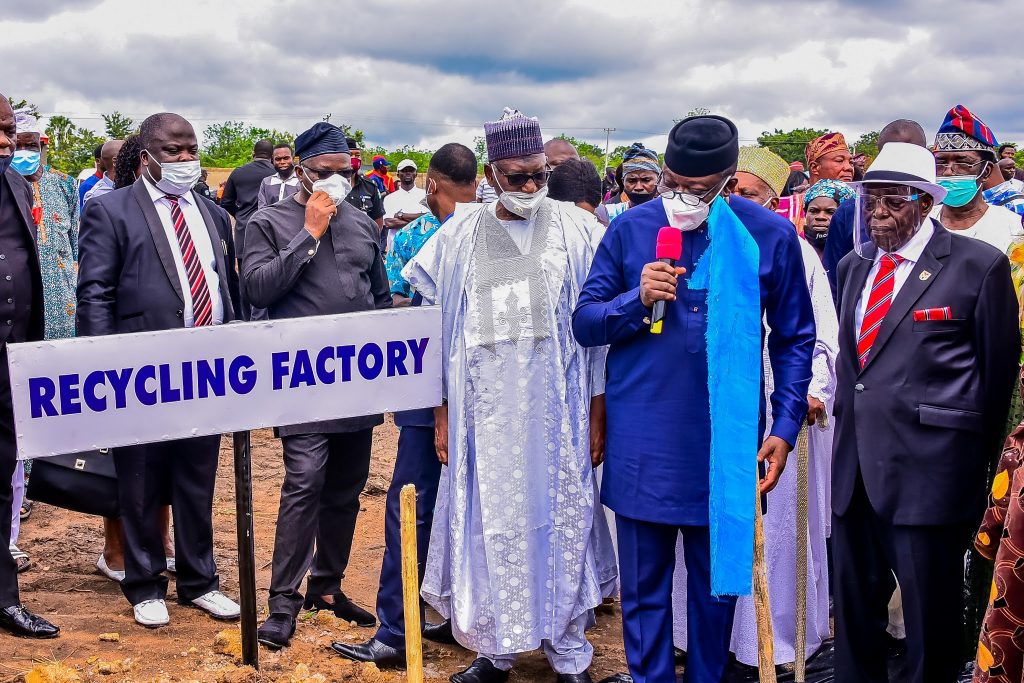
The recycling plant located within the University Industrial Park has officially commenced its operations, marking a significant step towards sustainability. It is widely recognized that carbon emissions have a detrimental impact on quality of life, contributing to a range of chronic health issues and even leading to premature death over time. In response to this pressing concern, the University has implemented a comprehensive system designed to mitigate carbon emissions through various effective measures.
ABUAD Law and Community Legal Clinic
In 2024, the ABUAD Law and Community Legal Clinic, located within the ABUAD College of Law, is dedicated to providing comprehensive courses and programs aimed at alleviating poverty and enhancing access to justice for marginalized and underprivileged members of society.
To achieve this goal, the Clinic organizes monthly training sessions in various settings, including correctional facilities, disability support homes, and low-income neighborhoods. These sessions are designed to educate participants about their rights and inform them about essential government services and programs available to them.
Through these initiatives, the ABUAD Law and Community Legal Clinic seeks to empower individuals by equipping them with the legal knowledge and resources necessary to navigate their challenges and improve their quality of life. The Clinic’s commitment to community engagement and social justice is evident in its ongoing efforts to reach those who are often overlooked, fostering a more equitable society for all.
Background of ABUAD LAW AND COMMUNITY LEGAL CLINIC
Afe Babalola University is a strategic effort to revolutionize the tertiary education delivery system in Nigeria. This effort became necessary because there was a dire need to redeem the, hitherto, excellent reputation Nigeria had in the educational sector. Apparently, organs and structures within the University bear this vision of the Founder of Afe Babalola University, Aare Afe Babalola SAN, D. Litt, CFR.
Sequel to the above, many programmes and courses were ingeniously designed, not only to distinguish the efforts of the University but to prepare students for contemporary socio-economic realities. The Afe Babalola University, Ado-Ekiti (ABUAD) Law Clinic was designed by one of the foremost teachers in the University who is currently the Vice Chancellor and pioneer Director of the Law Clinic, Prof. Smaranda Olarinde, bearing in mind the vocational aspect of legal education. Thus, the Law Clinic was designed to help students meet the complex, dynamic and contemporary demands in the legal industry such that upon graduation, they would have served their communities in a service-learning programme and garnered the skills and experience needed to create critical value in the legal industry.
The ABUAD Law Clinic is an integral part of a course titled, “Introduction to Legal Practice,” which is a mandatory 400 Level course in the College of Law, taken during the first and second semesters. The course exposes students to the practical application of the theoretical knowledge of legal practice, acquired in class and this includes alternative dispute resolution (ADR) skills such as negotiation, mediation, arbitration, conciliation and the hybrid variants such as med-arb, et cetera. To deepen the knowledge of the students, they are encouraged to take certified courses with the Nigerian Institute of Chartered Arbitrators. With these skill sets, students can resolve conflicts or disputes that are brought to the Law Clinic, under the guidance of the staff clinicians.
The knowledge of human rights that students acquire in classrooms inspire them to reach out to secondary school students to create awareness about their rights and obligations as citizens of Nigeria. Student-clinicians have also carried out advocacy visits in communities to sensitize women about their rights and interviewed detainees in the Nigerian Correctional facilities in Ado Ekiti.
The physical structure of the Law Clinic which is situated strategically at the ground floor of the College of Law and gives clients easy access to the clinicians and ensures privacy. It has a large reception where prospective clients are welcomed and made comfortable by clinicians. The clients’ bio data and requests are documented. The clinic also has four clients’ interviewing rooms that ensure confidentiality and a favourable atmosphere for interaction between clients and clinicians.
The Clinic is manned by a Clinic Director, an Administrator, Staff-Clinicians and Student Clinicians. The Administrator who is also a lecturer in the College of Law, administers and coordinates the activities in the clinic. The staff-clinicians are lecturers in the College of Law, ABUAD, who have been trained in clinical practice and the use of Alternative Dispute Resolution (ADR) to settle disputes. The student-clinicians are 400 Level students at the College of Law.
The mission of the clinic is to birth twenty-first century lawyers who can compete favourably with counterparts in the legal industry anywhere in the world through service-learning and clinical legal education. To fulfil the mission of the Clinic, the following objectives have been set:
- Build the capacity of student-clinicians to be strong and responsible community leaders who can independently and collaboratively, design and implement legal solutions to social problems, especially with respect to low-income households.
- provide free legal services to indigent people and low-income households in the immediate community through supervised participation.
- instil integrity, value of pro bono services and discipline in law students of Afe Babalola University.
- train students to use Alternative Dispute Resolution methodologies in proffering solution to cases without recourse to litigation.
- foster peaceful coexistence and decongest the Courts; and
- promote peace and progress in the immediate society through strategic collaboration with relevant stakeholders.
To realize the objectives of the ABUAD Law Clinic, activities were planned and carried out during the period under review, which include the following:
- Strategic Advocacy
- Symposium on Women’s rights
- Awareness campaign on human rights within and outside the University.
- Client interviews and counselling.
- Symposium with the Nigeria Police and the Ekiti State Ministry of Justice.
- Legal aid/sensitization at Odo-Ado Police Station.
- Interview of prison inmates, Legal aid/humanitarian assistance at Ado-Ekiti Prisons; and
- Sensitization of Children about their rights in Secondary Schools.
In view of its objective, the law clinic provided several opportunities for students to interface with political leaders, particularly the Attorney-General of Ekiti State and the Speaker of the Ekiti State House of Assembly. This high-level interaction serves the purpose of providing a channel for student-clinicians to engage with the operators of power on social problems which they are working on. It also provides opportunities for mentorship for students. During the period under review, students interfaced with the Speaker of Ekiti State House of Assembly on the need to reform the Criminal Laws of Ekiti State. The Speaker, in acknowledging the need for reforms, registered his readiness to collaborate with the Clinic and provide mentorship whenever needed.
On December 10, 2024, the ABUAD Law and Community Legal Clinicians visited Ekiti State House of Assembly as students’ parliamentarians to engage the leadership of the Ekiti State House of Assembly on the need to enact a bill that will ensure better human rights for the people from low-income households and people living with disability. It also a time celebrate the World Human Rights Day themed “Our Rights, Our Future, Right Now” and commemorating the 76th anniversary of the Declaration of Human Rights Day. This event emphasizes the current importance of human rights in our daily lives and calls for immediate action to mobilize a global movement for human rights among young people especially those with low-income households.
Additionally, the Afe Babalola University Law Clinic provides invaluable services to neighboring communities as part of its commitment to some of the 17 United Nations Sustainable Development Goals (SDGs). The law clinic experience is an integral part of students’ legal practice, equipping them with the necessary skills for the workplace while also providing a solid theoretical foundation and in-depth substantive knowledge in their fields of study.
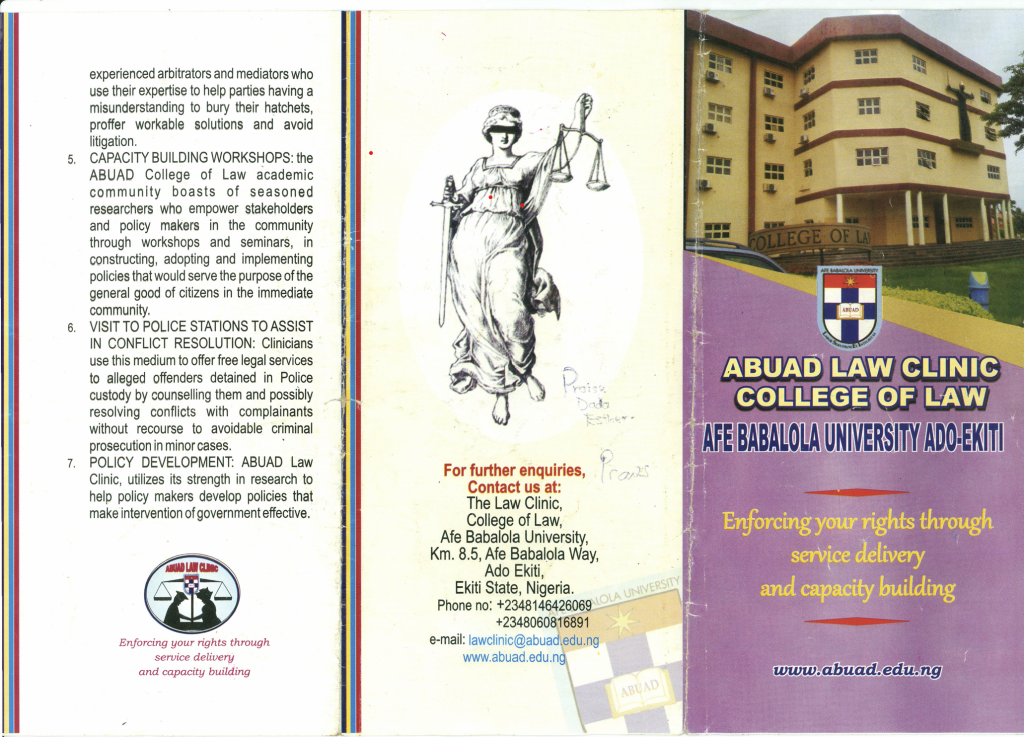
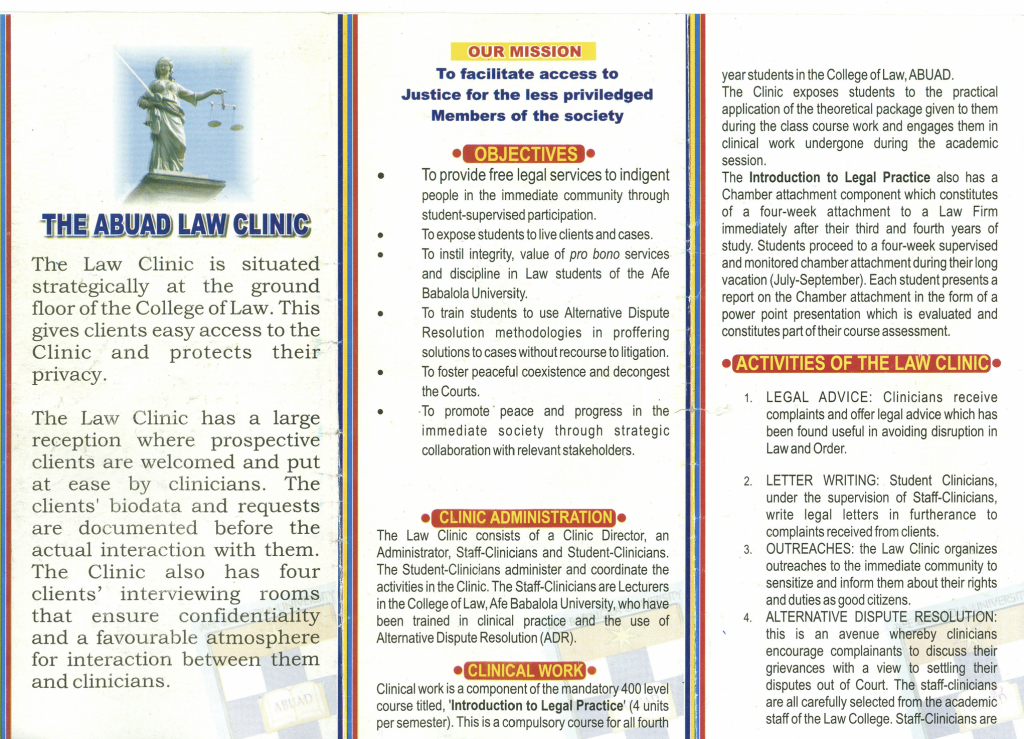
ABUAD continues its collaboration with NGOs to improve SDGs awareness and education
In 2024, ABUAD has continued its collaboration with the Durban University of Technology’s (DUT’s) Dr Emem Anwana, the Faculty Research Co-ordinator at the Faculty of Management Sciences, was recently invited by the Vice-Chancellor of the Afe Babalola University, Ado Ekiti (ABUAD) in Nigeria, Professor Smaranda Olarinde on an academic exchange from 11 January to 15 January 2024. The aim of the visit was for Dr Anwana to engage in various sustainability in academic programmes to strengthen areas of collaboration between DUT and ABUAD, Africa’s fastest growing university.
This visit to ABUAD comes after a Memorandum of Understanding (MoU) partnership which was signed between DUT and ABUAD on 31 August 2021 and was reviewed 2024. DUT and ABUAD reviewed the signed Memorandum of Understanding (MOU) which also forms part of DUT’s ENVISION2030 that is to build mutually beneficial partnerships.
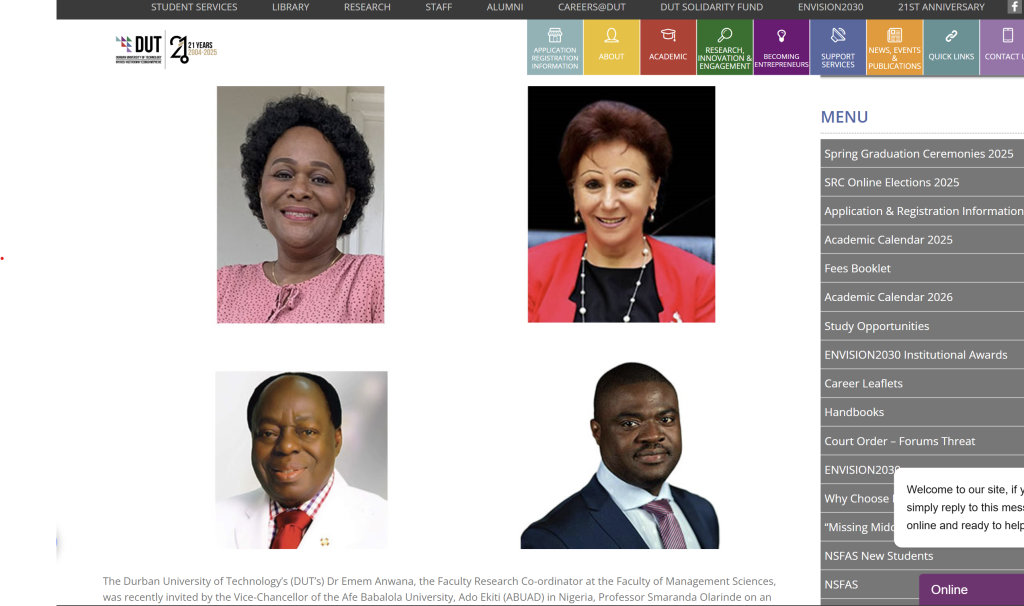
The ABUAD-DUT MOU aims to enhance the international engagement and capabilities of DUT and ABUAD. To do so, it has set out two key goals which are to establish precise academic and financial arrangements and to support, as appropriate, the exchange of personnel between DUT and ABUAD and conduct collaborative research projects to innovate and address challenges identified by both or either party. The virtual signing ceremony also included the orientation of DUT postgraduate students from the Faculty of Management Sciences.
Dr Anwana explained how the partnership came about with DUT and ABUAD, stating: “In 2024, the vice-chancellors of both DUT and ABUAD reviewed the signed an MOU online which included amongst other things, to train ABUAD staff members to attain higher qualifications in both Master and Ph.D’s in the areas of sustainability, to conduct academic exchanges amongst both staff and students of both institutions and for academic conferences and webinars to be hosted by both institutions. typically on Sustainable Developments”
In May 05, 2024, ABUAD Institute for Oil, Gas, Energy, Environment and Sustainable Development (OGEES Institute (OGEES) in collaboration with the International Law Association (Nigerian branch) and the Green Institute, is organizing INTERNATIONAL CONFERENCE ON ENVIRONMENTAL LAW, GOVERNANCE AND SUSTAINABLE DEVELOPMENT with the theme CLIMATE CHANGE, ENERGY TRANSITION AND LOOKING BEYOND, THE EARTH’S FUTURE: THE ROLE OF STAKEHOLDERS IN SUSTAINING INTERNATIONAL ENVIRONMENTAL RULE OF LAW.
The International Conference on Environmental Law, Governance, and Sustainable Development provides a timely opportunity to critically investigate practical, philosophical, and methodological approaches for addressing longstanding barriers to the effective design and implementation of environmental law.
This Conference brings together governments, business leaders, environmental educators, academics, and
practitioners to exchange knowledge experience and learn from each other on how to strengthen the implementation and application of the international environmental rule of law in Africa and beyond.
In June 5, 2021, during the World Environment Day, the Institute for Oil, Gas, Energy, Environment and Sustainable Development (OGEES Institute) in conjunction with Afe Babalola University organized the 2021 edition of the World Environment Day (WED) symposium with the theme: Ecosystem Restoration. Sustainability experts drawn from the University and across the frontier host a hybrid (Online and In-person) summit time #Ecosystem Restoration for the World Environment Day, a United Nations awareness campaign for environmental protection, held annually since 1974. Participants were sensitized on GHG emissions’ management, energy utilization and conservation, advocacy on public pledge of 100% renewable energy, reafforestation, and fossil fuel divestment methodology among many others. The programme commenced at 12noon GMT.

ABUAD has continued its strategic partnerships with non-governmental organizations (NGOs) to promote local awareness on aspects of the SDGs including, zero hunger, good health and well-being. Peace justice and strong institution, climate change, pollution control and conservation among many others.
In June 5, 2020, Jeffrey Sachs (SDSN), Adenike Akinsemolu (Green Institute/OGEES, ABUAD), and Hamad Bin Khalifa University (Qatar Foundation) will be gathering sustainability experts from across the globe to host a virtual summit Time #ForNature for the World Environment Day, a United Nations awareness campaign for environmental protection, held annually since 1974.
Since the industrial era, humans have practiced dominance instead of coexistence with nature. The latest lockdown made it possible to review environmental concerns that humanity is currently facing. Scientists and most authorities agree that the world is experiencing an unprecedented ecological crisis, with large numbers of species on the brink of extinction and rising global temperatures continuing. We weren’t prepared for Covid-19, and we have paid the price – but the cost of ecological collapse and biodiversity loss will be too high, and we cannot afford to wait any longer. Perhaps, now is the time to evaluate our past, present, and future decisions to realize the future we want.

Adenike Akinsemolu, the founder of the Green Institute, a leading and multiple award-winning sustainability research institute in Nigeria and a Senior Fellow of Environment and Sustainable Development at the Institute for Oil, Gas, Energy, Environment, and Sustainable Development at Afe Babalola University, Nigeria, is hosting a virtual summit Time #ForNature in partnership with Hamad Bin Khalifa University (a member of Qatar Foundation) and the UN Sustainable Development Solutions Network that will focus on sustainability and green education. The theme for World Environment Day, June 5, 2020, is biodiversity.
The online event will cover a range of topics such as biodiversity conservation, infectious diseases, sustainable agriculture, sustainable building, urban innovation, minimal living, waste management, renewable energy, etc. This paradigm-shifting online symposium will gather over 25 eminent sustainability leaders in different professions around the world to provide an opportunity to learn from successful cases and technologies for achieving Environmental Sustainability.

One of the keynote speakers is Jeffrey D. Sachs, who was named twice by Time magazine as one of the 100 most influential world leaders and ranked by The Economist among the top three most influential living economists. Jeffrey D. Sachs will join the conversation to discuss building resilient health structures to combat novel diseases. He has been an advisor to three United Nations Secretaries-General, and currently serves as an SDG Advocate under Secretary- General António Guterres. Jeffrey Sachs, being a University professor, is also the Director of the Center for Sustainable Development at Columbia University, a commissioner of the UN Broadband Commission for Development and the Director of the UN Sustainable Development Solutions Network.
“Everyday anthropogenic activities are responsible for the problems of our planet, and there is a need to salvage the situation through creativity, innovation, and critical thinking,”Adenike Akinsemolu stresses in her recent book, The Principles of Green and Sustainability Sciences (Springer, 2020), which will be launched at the event. In the book, Akinsemolu offers a detailed and step-by-step guide to understanding sustainability and discusses best practices to establish a more harmonious and balanced approach to living, highlighting her efforts in Africa and successful global cases. It is also one of the first texts, which examines sustainability issues in Africa.
Her Green Institute has already recruited more than 5,500 ambassadors and trained over 25,000 people globally. The revolutionary Trash for Education model lets hundreds of students study for free in exchange for collected waste. Its programs include the Green School, nano-degree-programs in sustainability and social entrepreneurship, The Green Kids Club, mentorship program and prizes for girls in sustainability, and research initiatives.
The participating organizations include the UNDP, Qatar Green Building Council, Qur’anic Botanic Garden, Farm Lab, Human Future, Springer Nature, Institute for Oil, Gas, Energy, Environment and Sustainable Development, University of Basel, the Open University UK, TerraCycle, Design Future(s) Initiative of Georgetown University, United Nations Development Program, and the Green Maasai Troupe Doha Qatar.
Press Credentials
To request a press credential, email Kate Kifa at pr@greeninstitute.ng with PRESS CREDENTIAL REQUEST in the subject line.
For more information and the full schedule: www.greeninstitute.ng/wed2020
About
The Green Institute, a leading and multiple award-winning research institute founded by Adenike Akinsemolu in Nigeria, is dedicated to the broad sustainability discourse, and to training leaders who will systematically transform attitudes about environmentalism in Africa. Its programs include the Green School and The Green Kids Club for kids and young adults, recycling programs such as Trash for Education, nano-degree-programs in Sustainable Science and Technology, Sustainable Business and Social Entrepreneurship, and research initiatives. https://greeninstitute.ng
Adenike Akinsemolu, Ph.D. is the founder of the Green Institute, a leading and multiple award-winning research institute in Nigeria dedicated to the broad sustainability discourse and to training leaders who will systematically transform attitudes about environmentalism in Africa. She holds a Ph.D. in Environmental Microbiology and a Postgraduate Diploma in Education. She is a Senior Fellow of Environment and Sustainable Development at the Institute for Oil, Gas, Energy, Environment, and Sustainable Development at Afe Babalola University, Nigeria. Her most recent book, The Principles of Green and Sustainability Science (2020), is the first sustainability text to deal exclusively with sustainability issues in Africa while offering viable solutions for the problems besetting our societies, especially the environment and unemployment.
Jeffrey D. Sachs, Ph.D. is a University Professor and Director of the Center for Sustainable Development at Columbia University, where he directed the Earth Institute from 2002 until 2016. He is also Director of the UN Sustainable Development Solutions Network and a commissioner of the UN Broadband Commission for Development. He has been an advisor to three United Nations Secretaries-General and currently serves as an SDG Advocate under Secretary- General António Guterres. He spent over twenty years as a professor at Harvard University, where he received his BA, MA, and Ph.D. degrees. He has authored numerous bestseller books. His most recent book is Ages of Globalization: Geography, Technology, and Institutions (2020). Sachs was twice named as Time Magazine’s 100 most influential world leaders and was ranked by The Economist among the top three most influential living economists.

In like manner, the Director of Institute for Oil, Gas, Energy, Environment, and Sustainable Development at Afe Babalola University, Nigeria has been appointed by the African Commission on Human and Peoples Rights Working Group on Extractive Industries, Environment and Human Rights Violations to entrench global best practices for SDGs collaboration. This appointment took effect from 08 August 2020.
Read more – ABUAD DVC gets AU environmental rights appointment
In the recent appointment into the Board of Association of African Universities(AAU), the Acting Vice-Chancellor, Afe Babalola University, Ado-Ekiti (ABUAD), Prof. Smaranda Olarinde has been appointed as a Member of the AAU Board. This appointment is to ensure the best practices are entrenched in the governance of African Universities of which sustainable development goals collaboration is of high significance. Read more – AAU Inaugurates New Governing Board Members
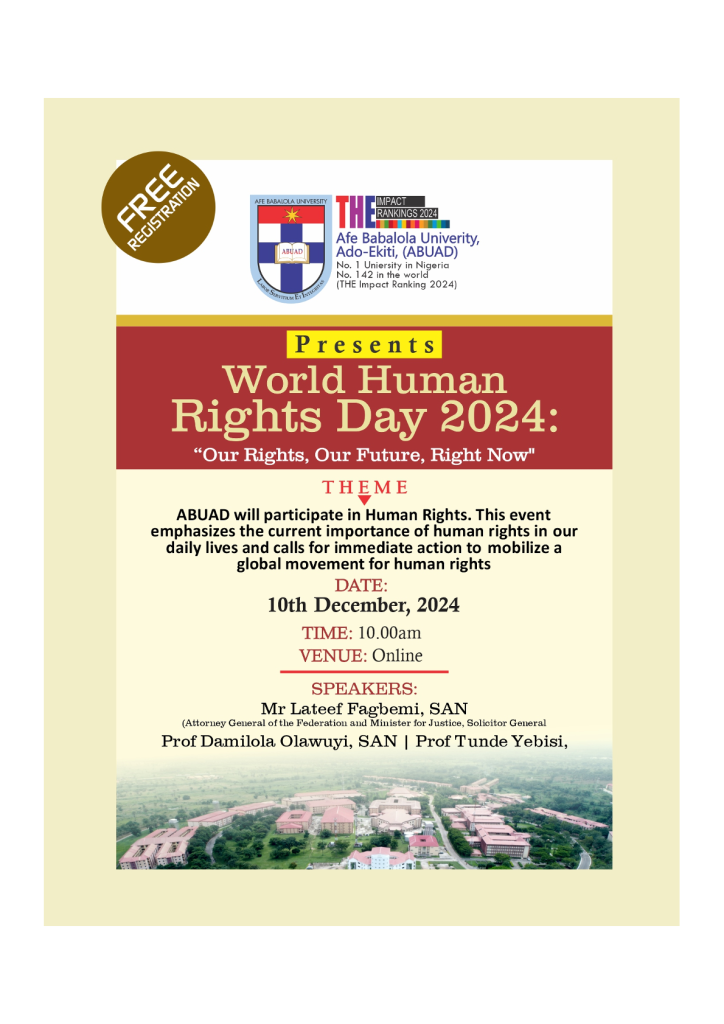
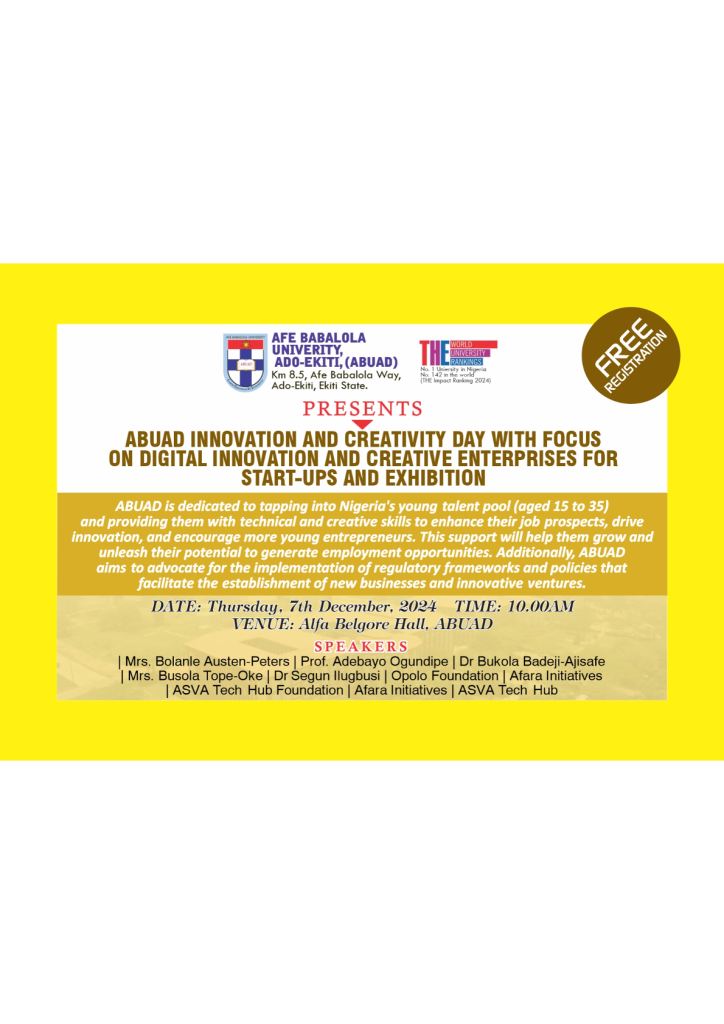
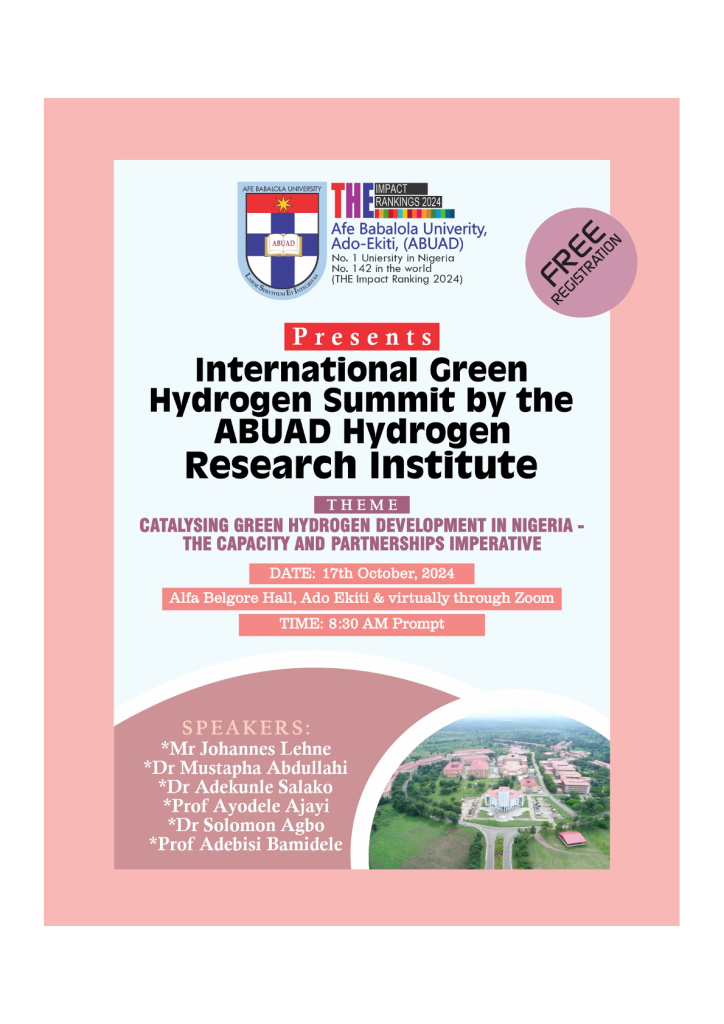
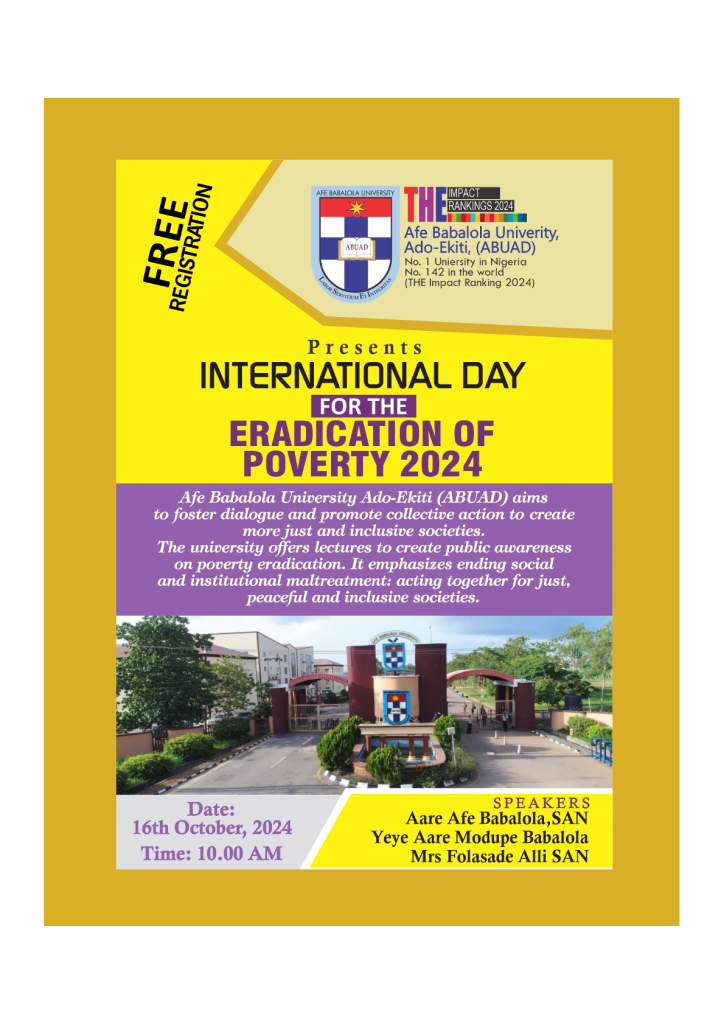
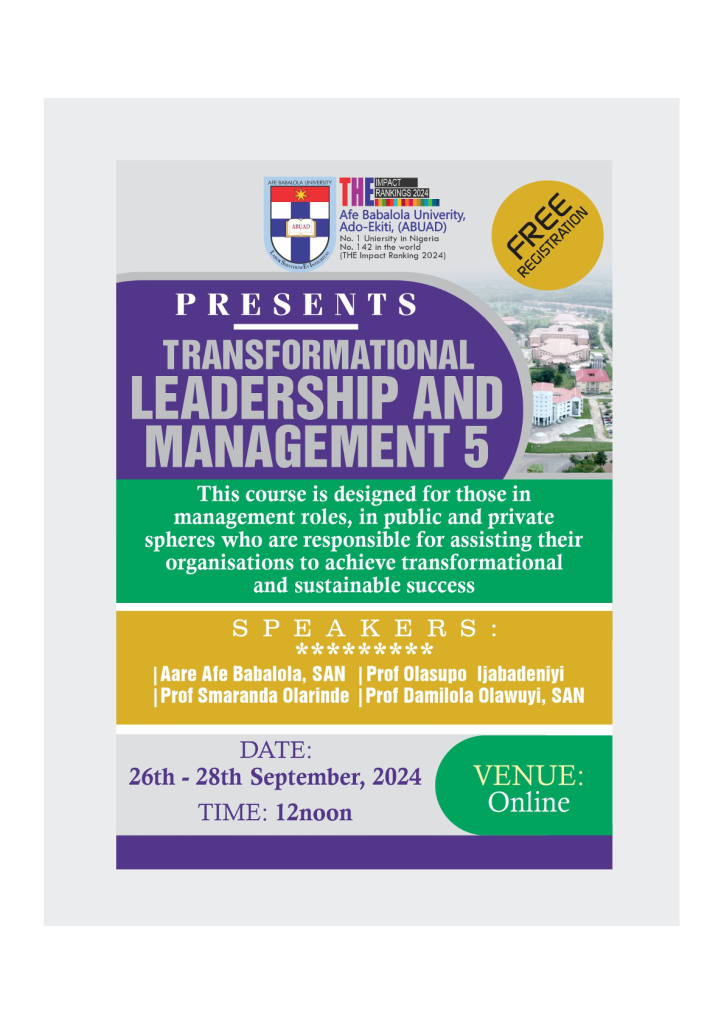
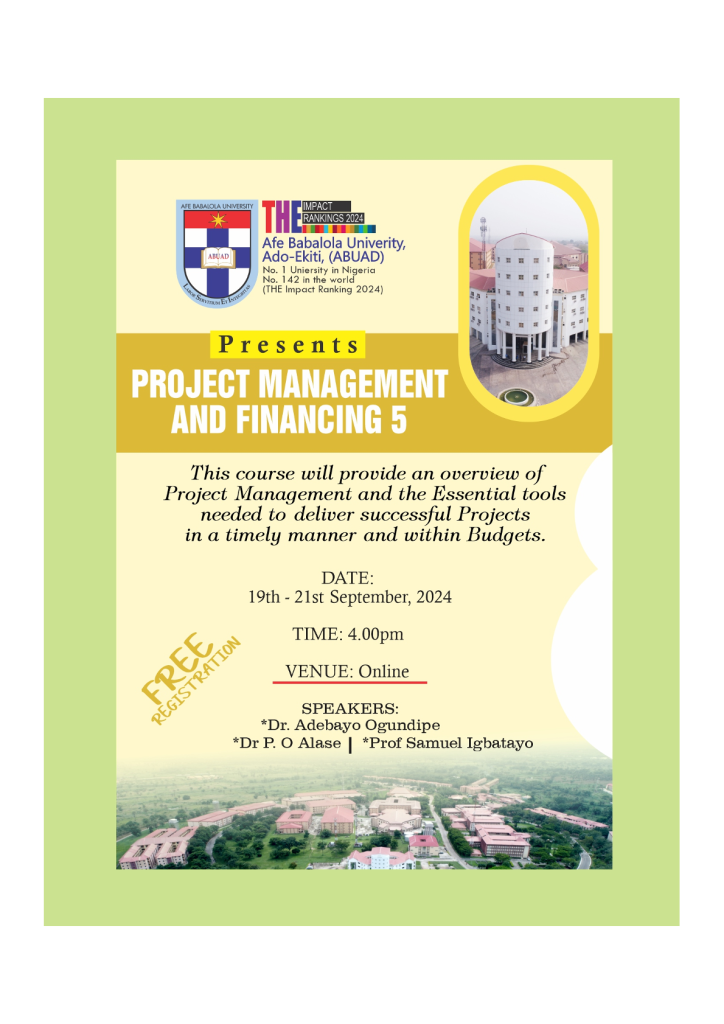
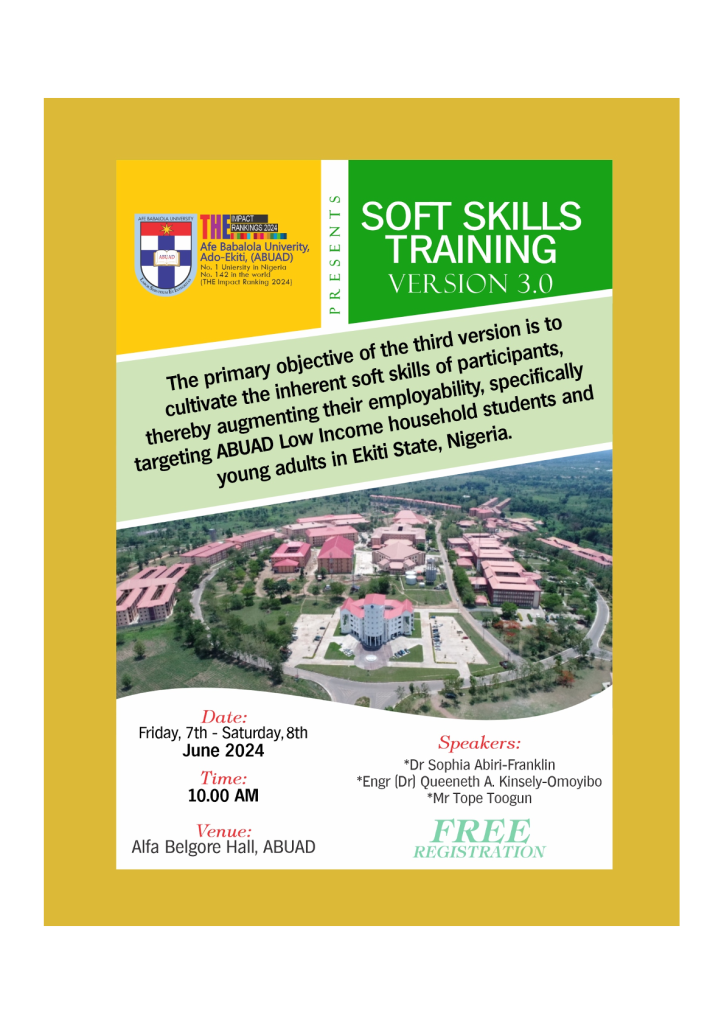
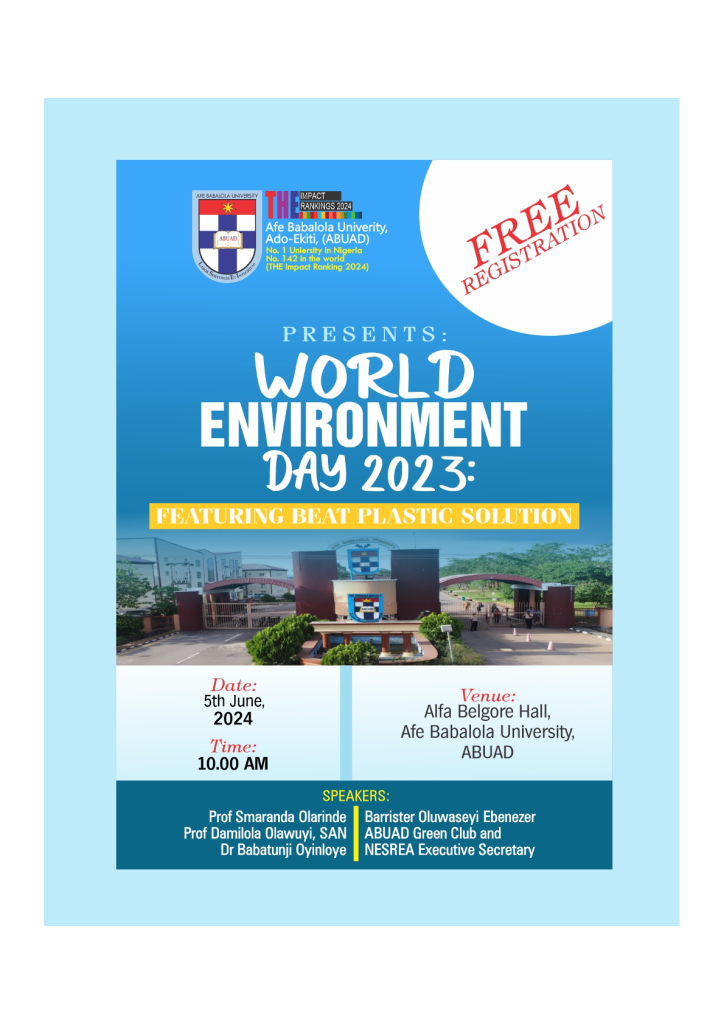
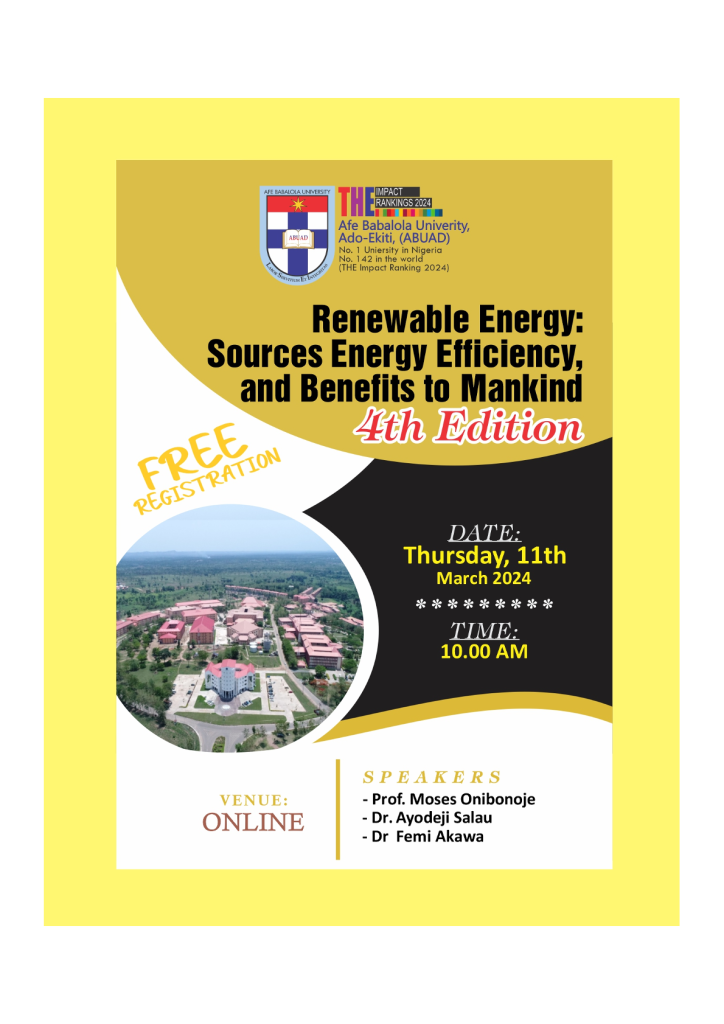
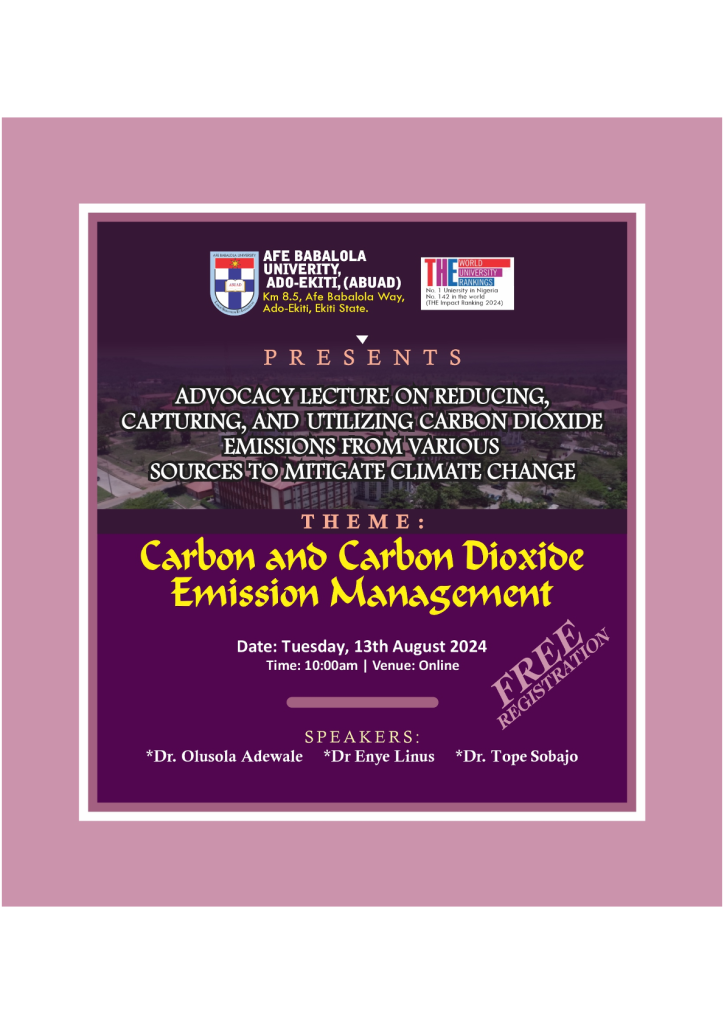
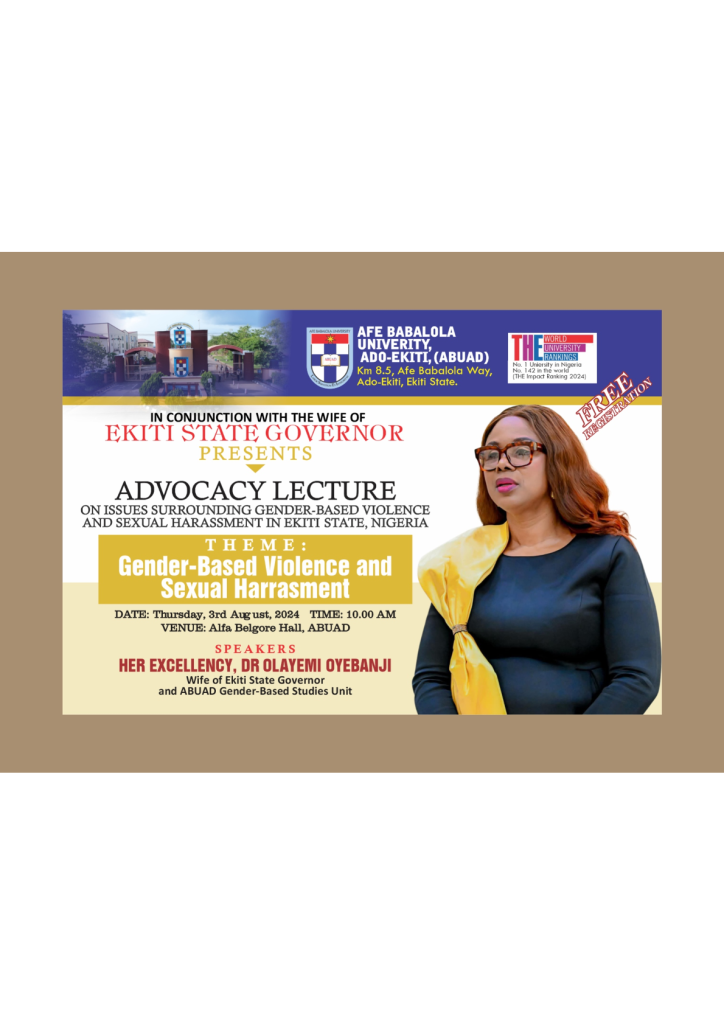
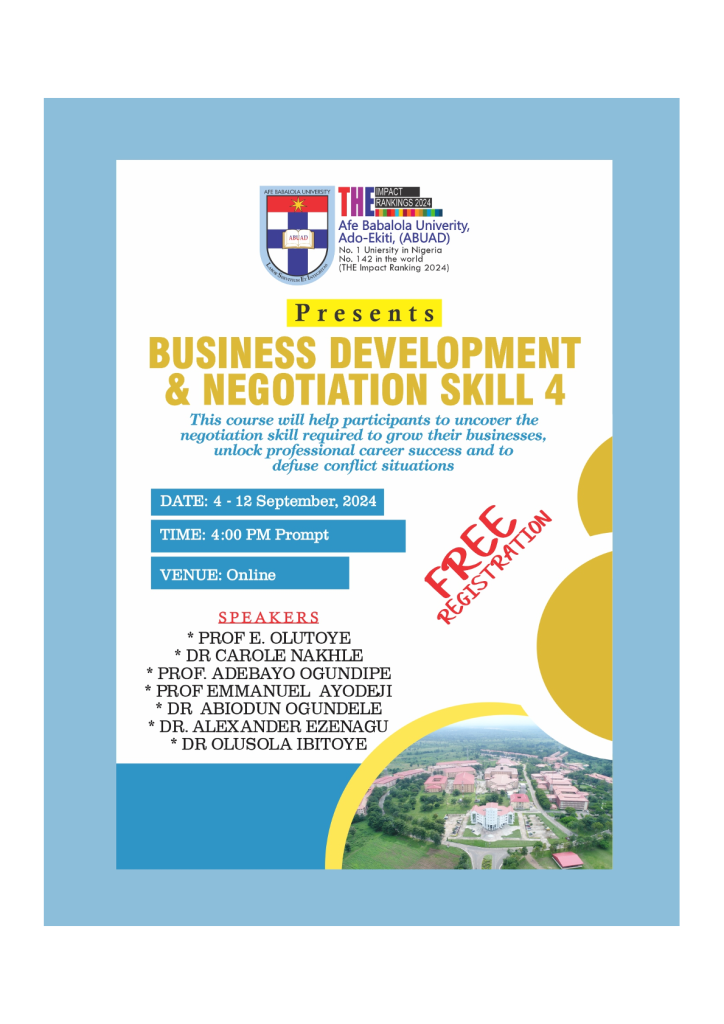
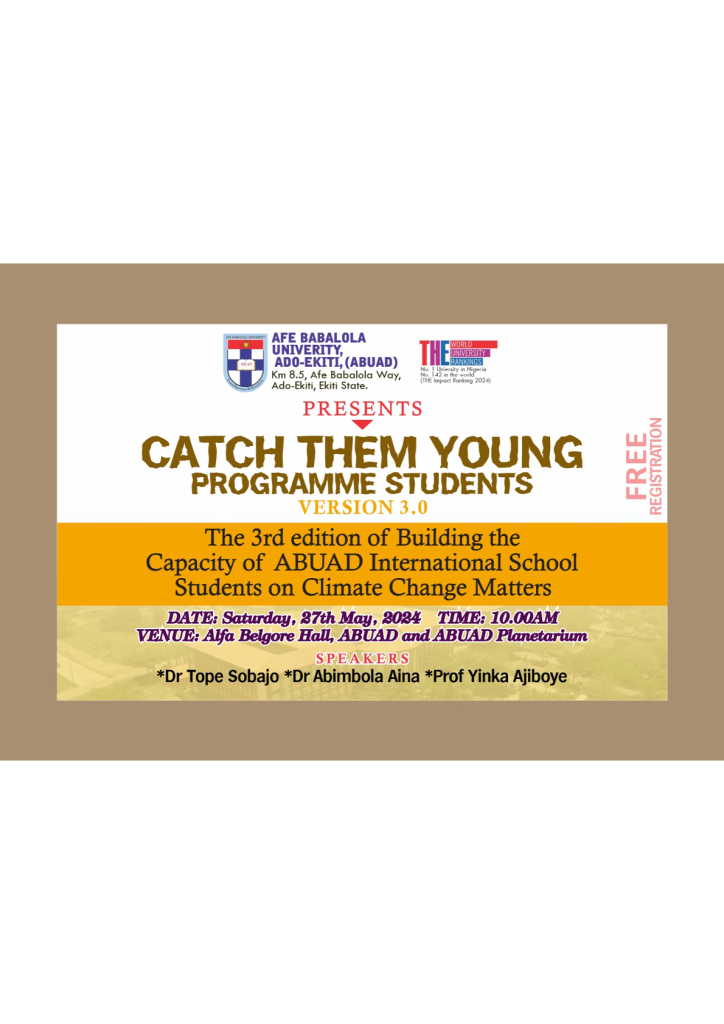

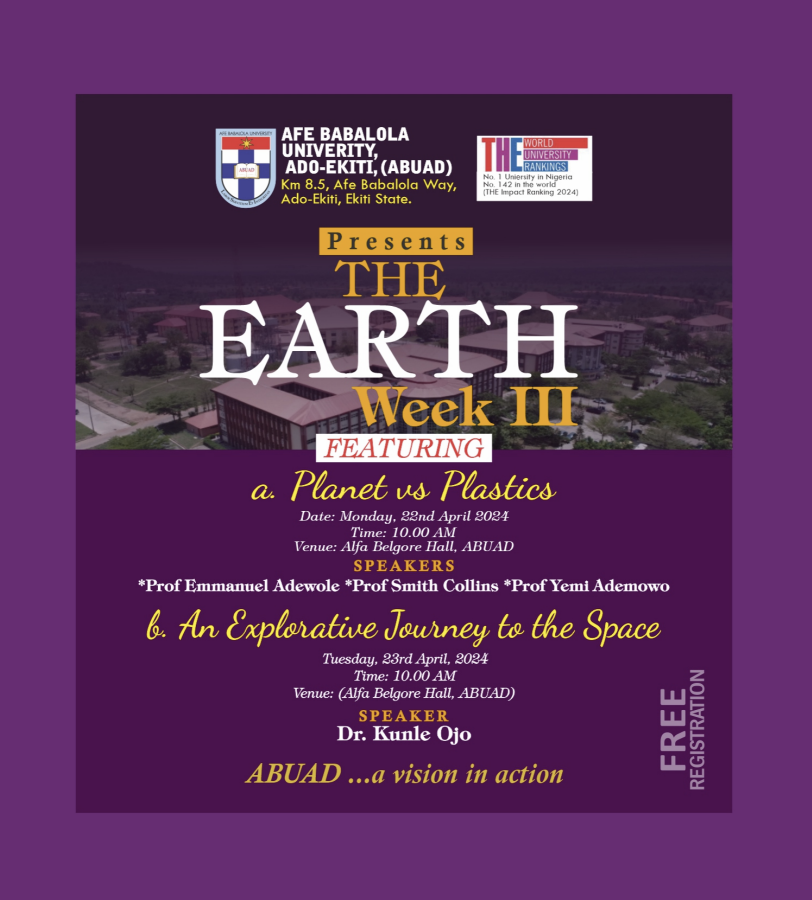



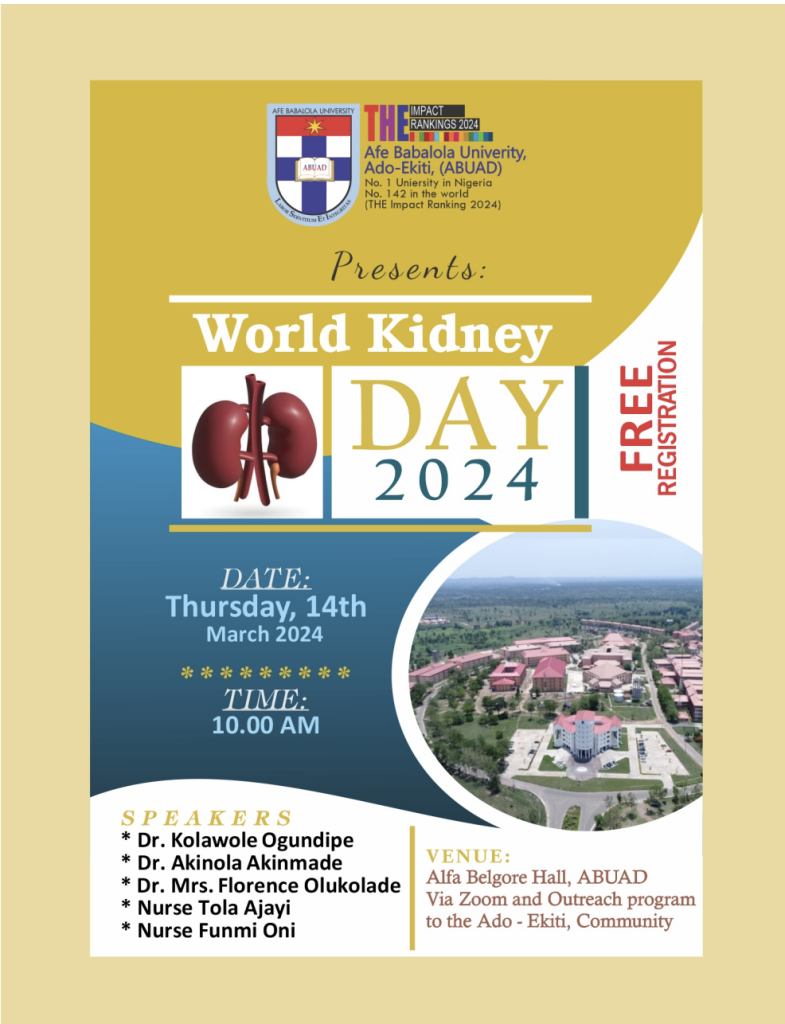
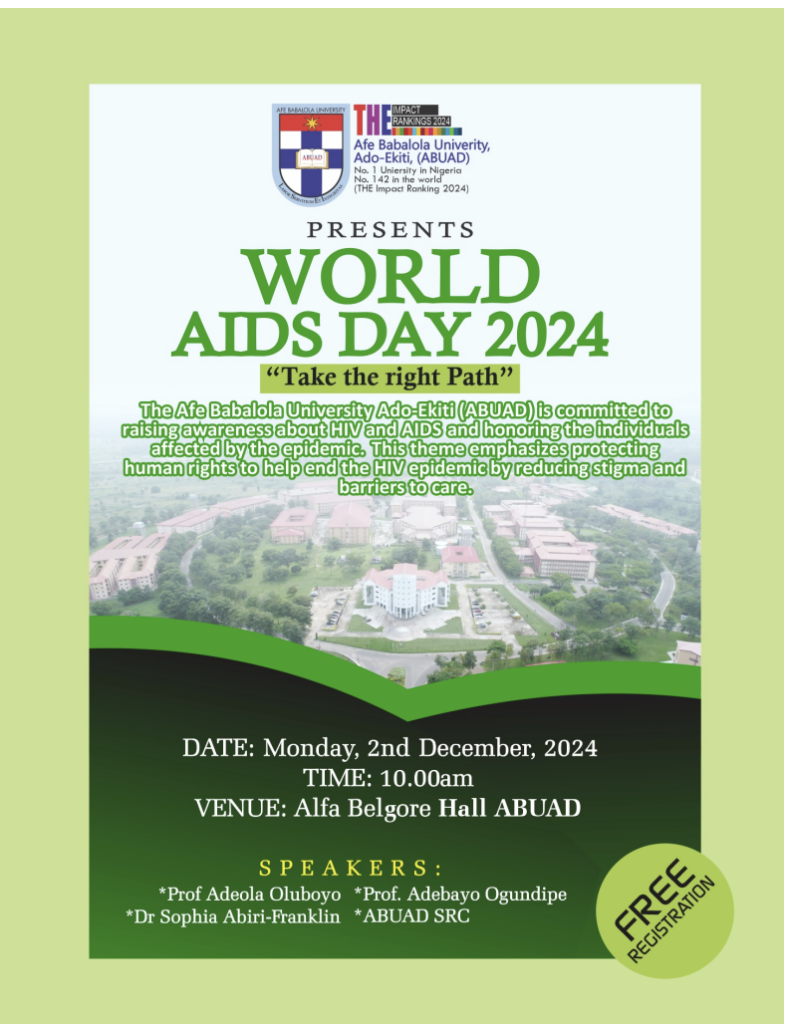

RELATED LINKS
Afe Babalola University Takes A Green Leap
Group Visits ABUAD’s Planetarium To Mark World Earth Day, Cleans Up Ekiti
World Earth Day: Triple G clean up Ekiti, visits ABUAD’S planetarium
ABUAD’s OGEES Institute partners with global coalition on World Environment Day
2024 ABUAD and MENA ASSELLMU Collaborate on Climate Change Conference

2024 Edition of Environmental Law and Policy Scholars’ Conference
The Institute for Oil, Gas, Energy, Environment, and Sustainable Development at Afe Babalola University (ABUAD), Nigeria, in collaboration with Hamad Bin Khalifa University’s (HBKU) College of Law, Doha, the University of Jordan, and the Association of Environmental Law Lecturers in Middle East and North African Universities (ASSELLMU), jointly organized the 5th and the 2023 edition of the MENA Environmental Law and Policy Scholars’ Conference held in Amman, Jordan.
The theme of the conference is “Law on Biodiversity, Nature Conservation, and the Protection of Cultural Heritage in the Middle East and North Africa Region.” The conference has educators, industry experts, and researchers from the environmental sector to cross-fertilize ideas and deepen the knowledge base on how to bolster biodiversity law practice, education, and implementation in Nigeria, MENA, and Sub-Saharan Africa.
So many experts in the education sector and industry spoke during conference keynote addresses. They include Patricia Mbote, Director of the Law Division, United Nations Environment Programme (UNEP); H E Dr. Leila Chikhaoui, Minister of the Environment of Tunisia; Dr. Nathir Obeidat, President, University of Jordan; Professor Randall Abate, Assistant Dean for Environmental Law Studies, George Washington University, USA; and Professor Damilola S. Olawuyi, SAN, Professor of Law, Deputy Vice Chancellor, Academic, Research, Innovation and Strategic Partnership (ARISP) Afe Babalola University(ABUAD), Director of OGEES Institute, Afe Babalola University and UNESCO Chair on Environmental Law and Sustainable Development at HBKU and Chair of ASSELLMU.
Other participants from Afe Babalola University (ABUAD), Nigeria included Dr Adebayo Ogundipe, Director ICT, ABUAD, Dr Yinka Ajiboye, Director, Space Development, ABUAD, and Mr Abraham Adeniran Research and Sustainable Development Desk Officer, ABUAD while the remaining participants from HBKU included Dean Susan L. Karamanian of HBKU Law; Dr. Andreas Rechkemmer, Professor of Public Policy, HBKU’s College of Public Policy, and Elena Athwal, third-year Juris Doctor (J.D.) student and research fellow to the UNESCO Chair at HBKU.
It is a notorious fact that “Biodiversity law is a powerful tool that protects our cultural heritage as much as our natural environment. Through this partnership with ASSELLMU, the University of Jordan and the financial support of UNEP, we hope to strengthen both the framework of environmental law in the region and strengthen the pedagogy of educational programs in this field. Together, we are eager to continue contributing to realizing the UN’s Sustainable Development Goals and Nigeria’s and Qatar’s National Vision 2030,” said Dean Karamanian.
Previous Edition
As part of its commitment to building key partnerships with like-minded organisations, the OGEES Institute of Afe Babalola University, Ado Ekiti (ABUAD) recently participated in the 2021 annual conference of the Association of Environmental Law Lecturers in Middle East and North African Universities’ (ASSELLMU).
The conference which was hosted in Doha, Qatar, has faculty in environmental law, practitioners and policymakers that came together to deliberate legal innovations, methods and strategies to climate change and its impacts in the Middle East and North Africa (Mena).

The conference affords a great privilege to promote the integration of climate change law teaching in the curriculum of law school.
It was organized through the support of the United Nations Environment Programme and in conjunction with the duo of Hamad Bin Khalifa University (HBKU) and Hassan the First University, Settat, Casablanca. The organizations that strategically partnered with UNEP to organize the conference are as follows: Morocco’s Laboratory for Research on Comparative Democratic Transition, LexisNexis MENA
“This conference outlined the important roles of academics, and non-teaching that are carefully selected from government, financial and industrial organisations, in addressing the challenges bedeviling MENA in relation to the worrisome effect of climate change. We shall continue to foster this relationship with all stakeholders for creative research and innovative solutions” according to Prof Damilola S Olawuyi, SAN, Director of the OGEES Institute.
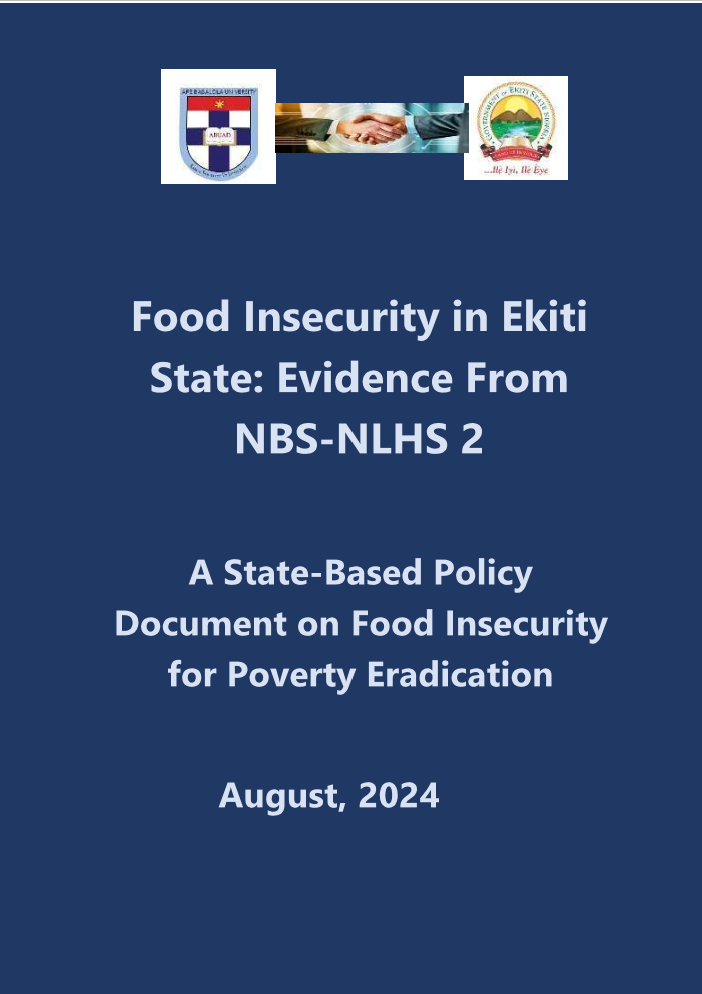
June-September-2024-Report_UNESCO-Chair-on-Peace-and-Citizenship-ID2020NG1392
Tagged: ABIS, abuad, afe babalola university, Nigeria
https://www.veracity.com.ng/2021/04/world-earth-day-triple-g-galvanize.html

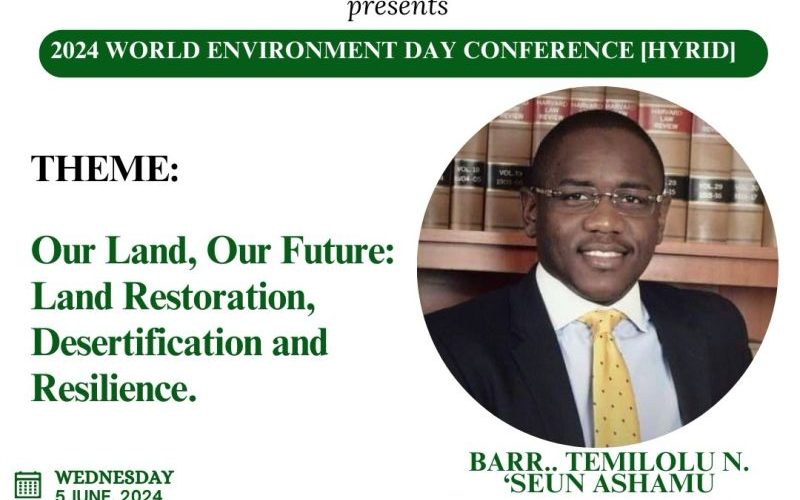
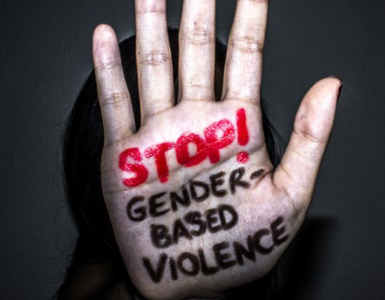
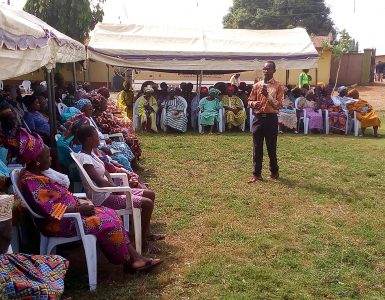
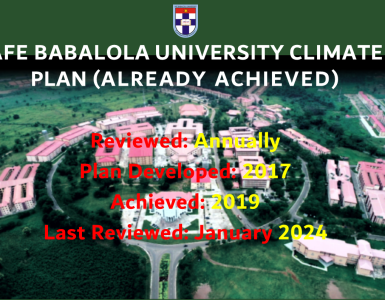
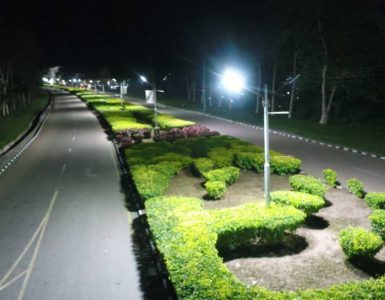











Add comment